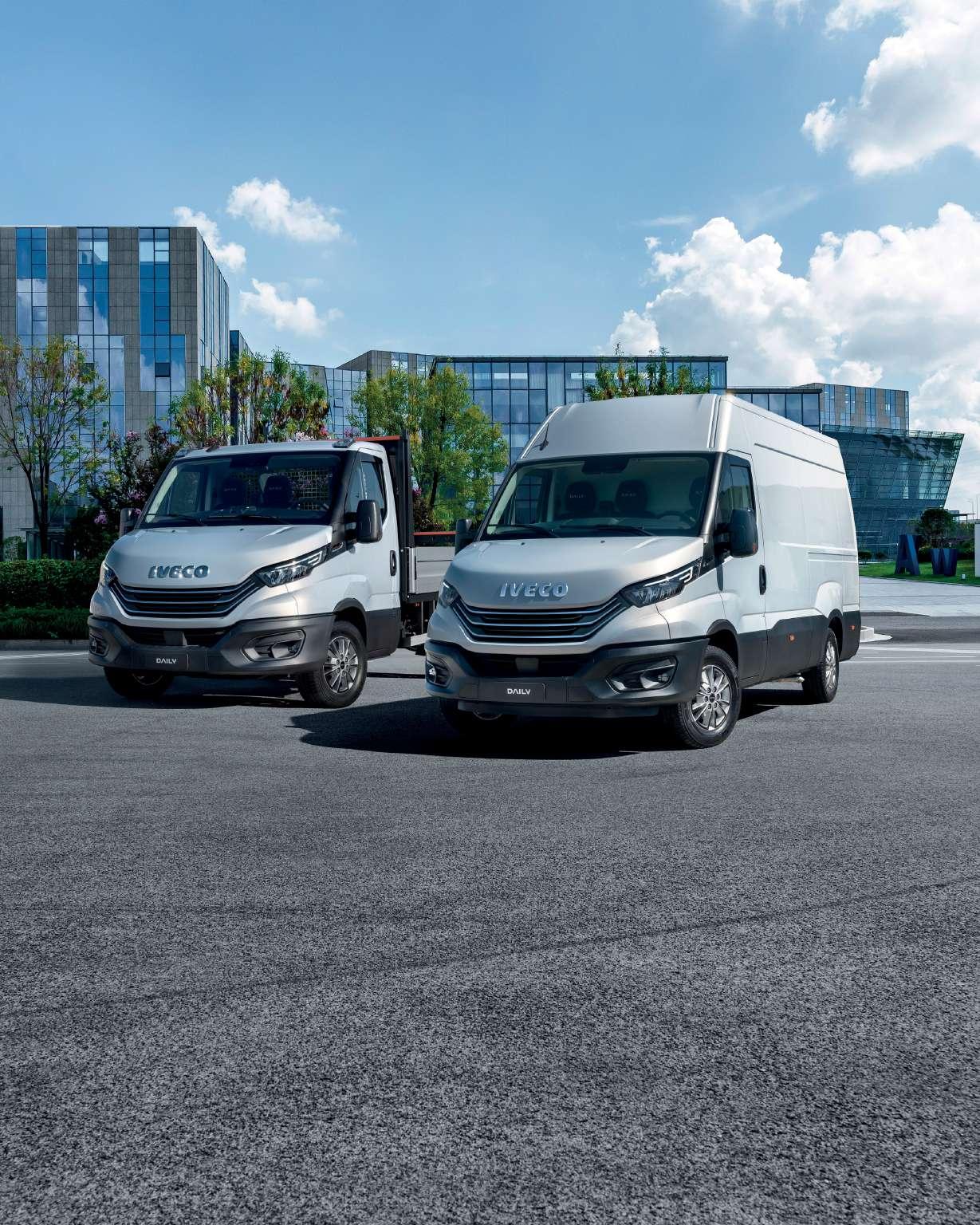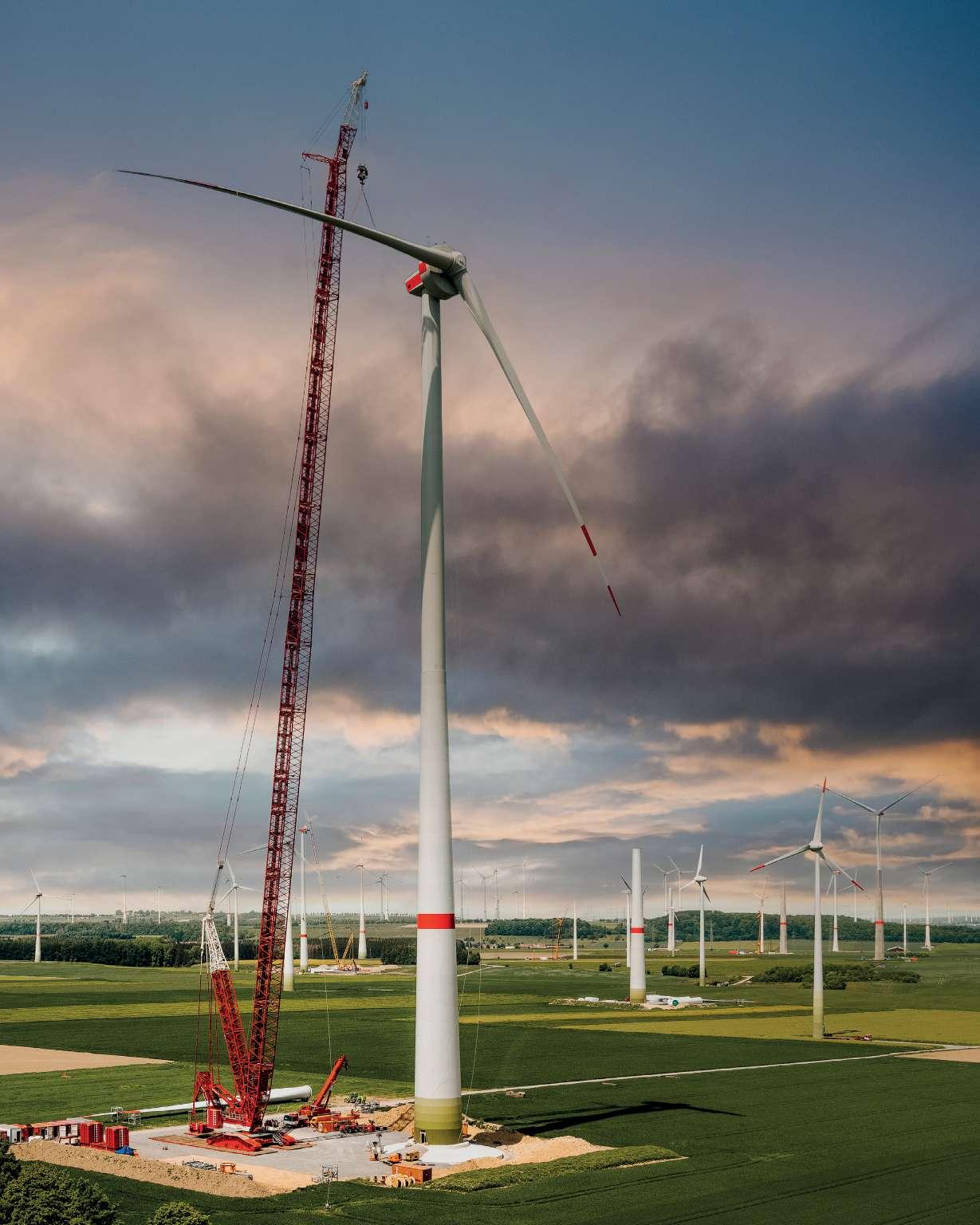




THE THIRD EDITION OF THE DIGITAL CONSTRUCTION AWARDS RECOGNISED EXCELLENCE ACROSS 16 CATEGORIES AT THE RITZ CARLTON JBR ON 24 JUNE

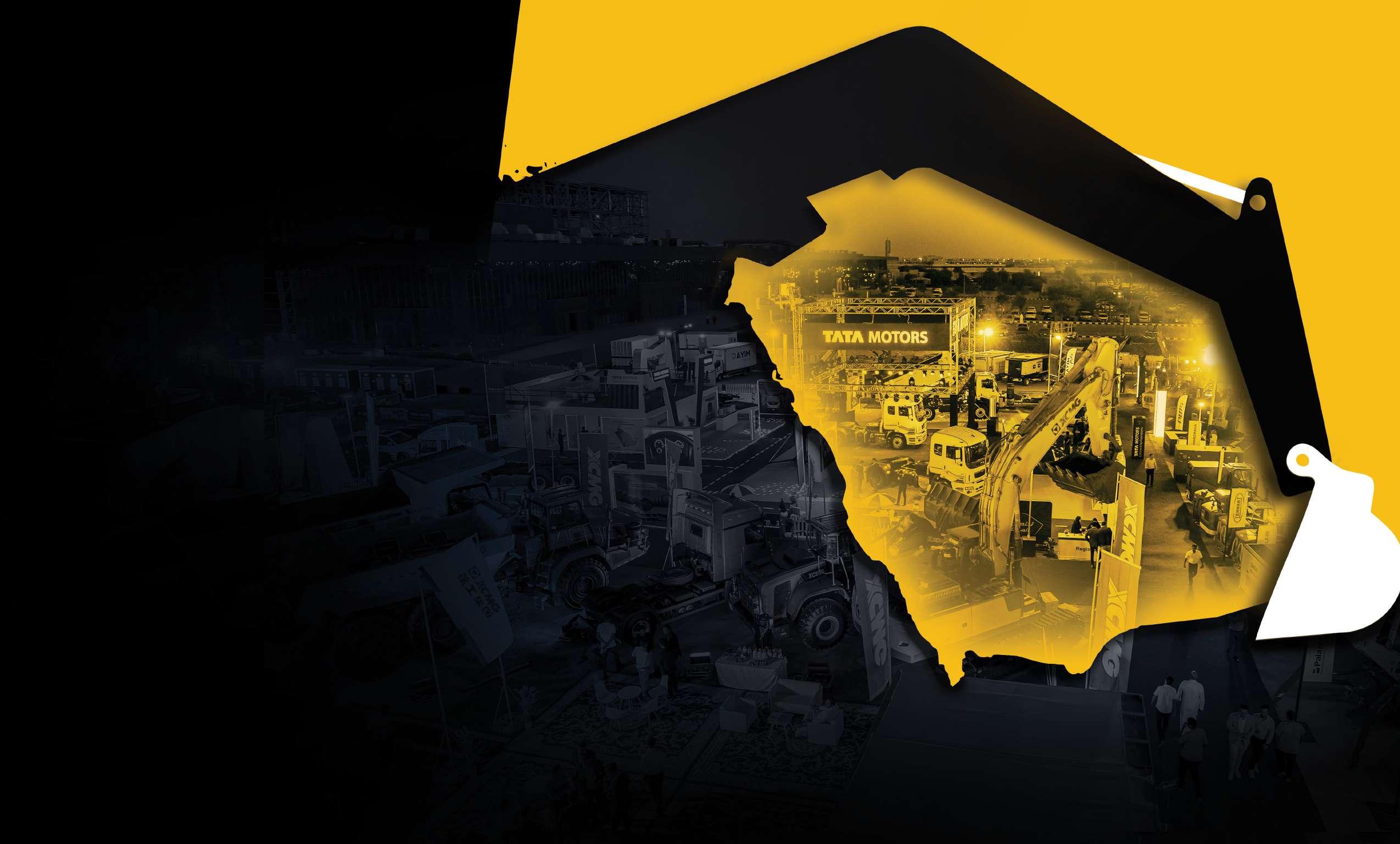


Much more to come from BPME in H2
It’s been a busy first half for the Big Project Middle East (BPME) editorial team, with the last quarter alone seeing the team host three different conferences, and the 2025 edition of the Digital Construction Awards. If you missed those events, you can catch-up on exactly what happened at each of those brilliant events by looking at the respective wrap features in this month's issue.
Looking ahead, the BPME editorial team will continue the momentum we built up during H1 2025, with a number of key events spread across the UAE and Saudi Arabia.
We’ll be kicking things off with our hugely anticipated Digital Construction Summit, which will take place on 25 September at the Habtoor Grand Resort, JBR, Dubai. The event will of course feature panels and presentations but – like last year – there will be a significant exhibition component where visitors will be able to experience the latest digital construction innovations. The key themes this year include topics
related to artificial intelligence, automation and robotics, digital twins and the rising skills gap. We’ll be following that up with an all-new conference in Dubai on 8 October, relating to fire safety but you’ll have to wait until next month for the finer details on that event. We’ll be following that event up with a new event in Riyadh, the World Cup Build Summit. The summit will be centred around the Kingdom’s preparations to host the FIFA World Cup 2034, and will take place on 20 October in Riyadh. We’ll announce the venue in due course, but I can reveal that it will focus on stadiums, associated infrastructure and the supply chain. If you're keen to get involved, do reach out to me. See you then!

Jason Saundalkar HEAD OF CONTENT
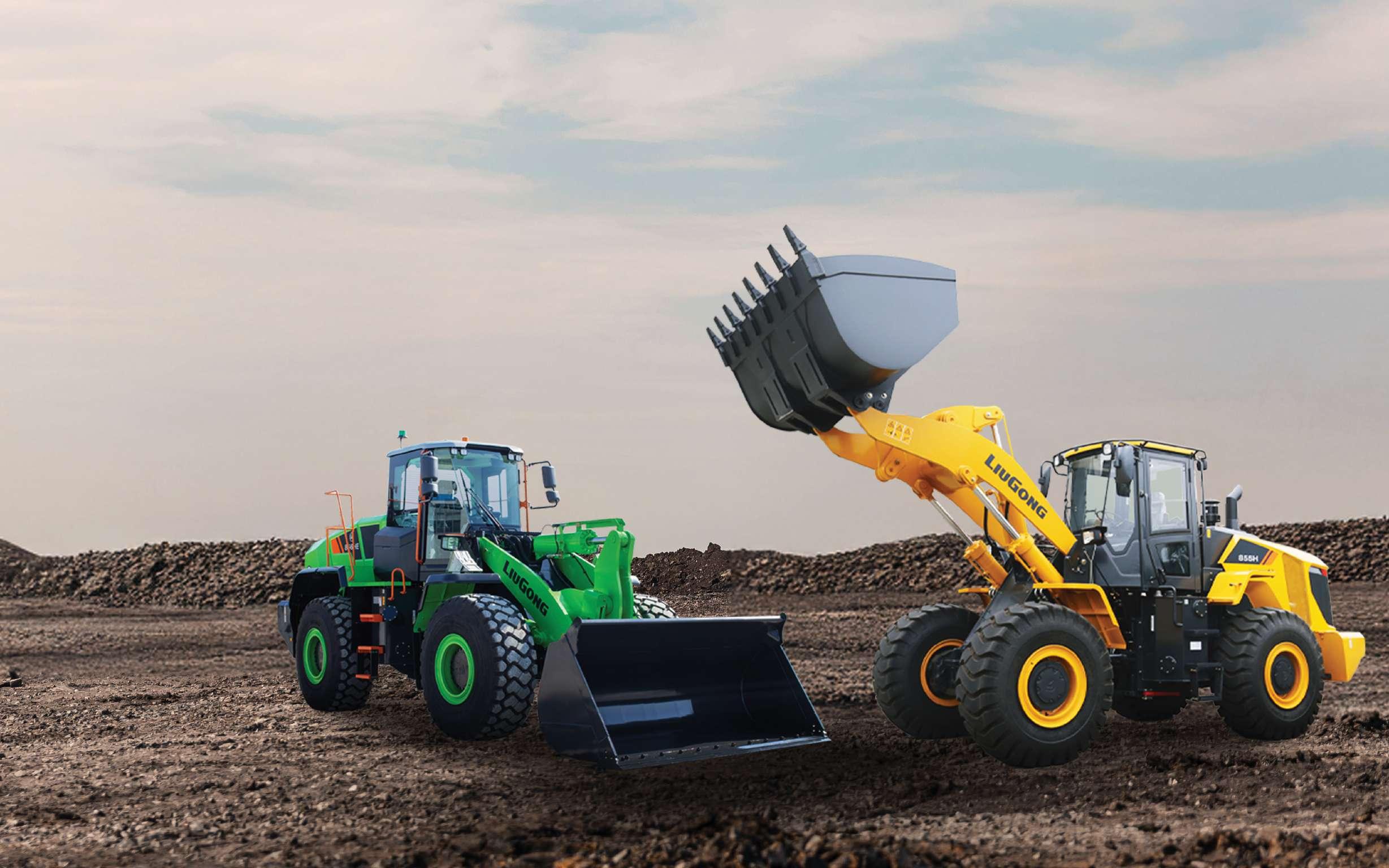
WITH 60+ YEARS OF PROVEN EXPERTISE, LIUGONG SETS THE STANDARD IN RELIABILITY AND DURABILITY. TACKLE YOUR TOUGHEST JOBS WITH CONFIDENCE. FINISH ON TIME AND ON BUDGET WITH THE WORLD-RENOWNED, TOP-SELLING LIUGONG WHEEL LOADERS. POWER YOU CAN TRUST, PERFORMANCE YOU CAN COUNT ON.

Compaction is precision work, especially compaction near the edges. Both sides of the CP275 tyres are wider than the frame, thus yielding excellent compaction performance, sparing customers the need for a small CC roller.
Productivity/Performance
Excellent Edge Compaction
Uniform Compaction
Air-on-the-run
Comfortable Operator Station
Redundant dual Circuit brake System
Serviceability
Easy service concept
Daily checks on display
Large water tank
The CP275 incorporates several features that will enhance efficiency, serviceability, operator comfort and the end result. With genuine Dynapac performance you can add the final touch to any project.



A perfect end result is dependent on the performance of the roller and on the skills of the operator.
In a Dynapac, the operator can take advantage of a highly ergonomic and user-friendly operator environment.
Two operator seats make work more efficient and give excellent visibility. Similar ways of controlling and the location of all the controlling units are more suitable to operator habits compared with symmetrical structures.
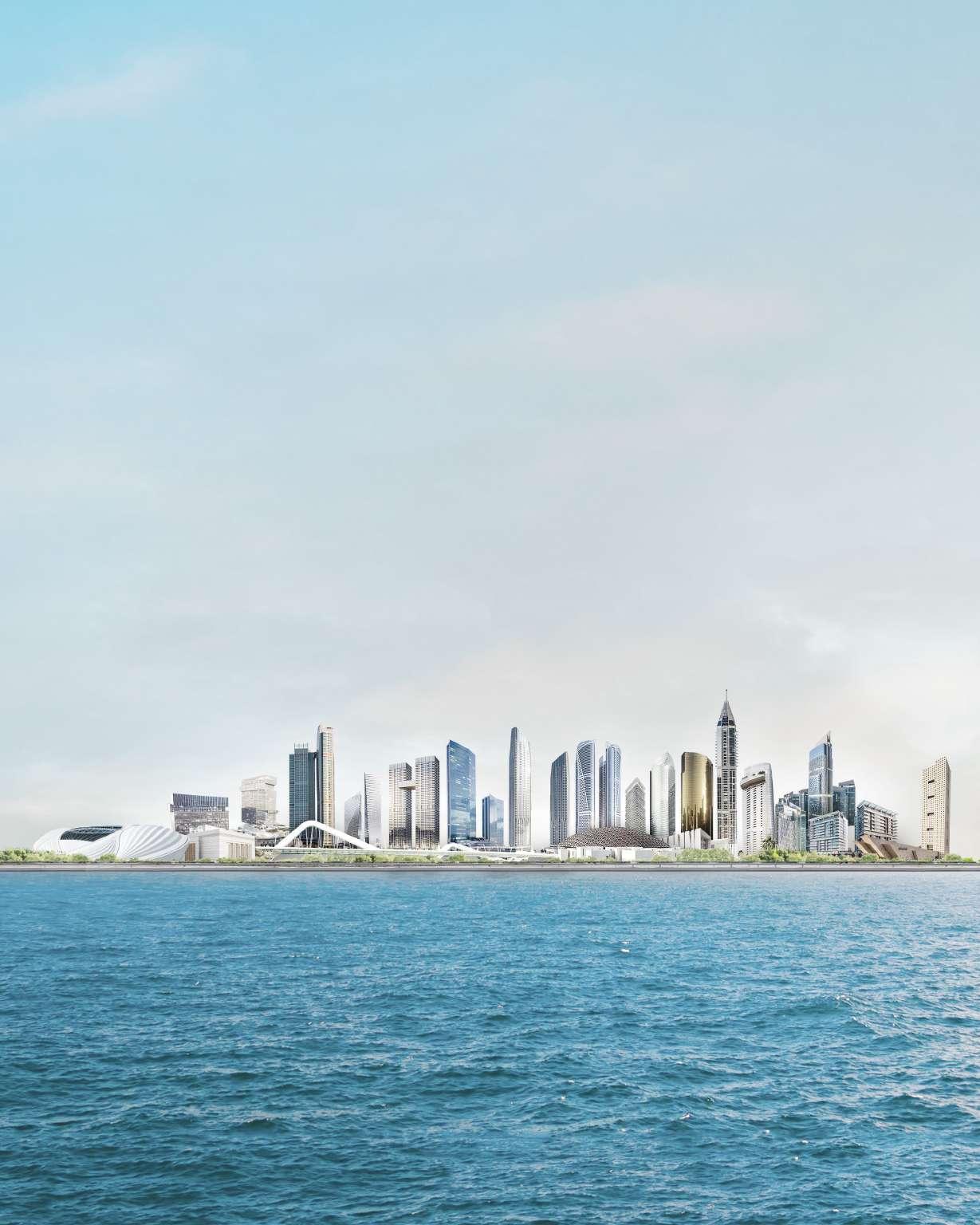



32 In Profile Celebrating Digital Excellence
The 2025 Digital Construction Awards gala took place on 24 June at the Ritz Carlton JBR, Dubai and recognised individuals, projects and companies across 16 distinct categories
14 The Briefing
ALEC reaffirms commitment to excellence and sustainable growth
24 The Big Picture
A wrap-up of the biggest international construction news stories for the month
26 Market Report
JLL discusses the performance of Cairo's residential, commercial, retail and hospitality segments in Q1 2025
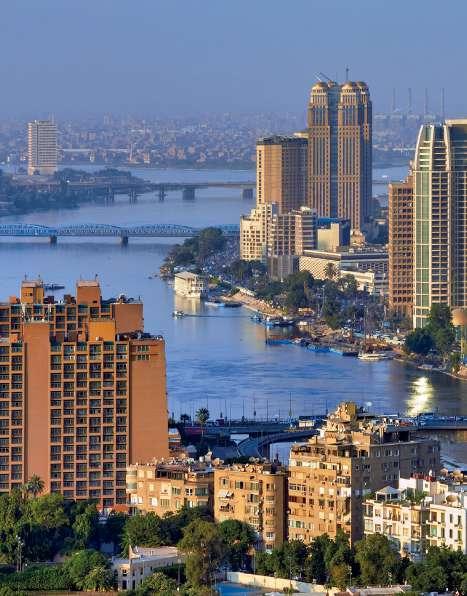
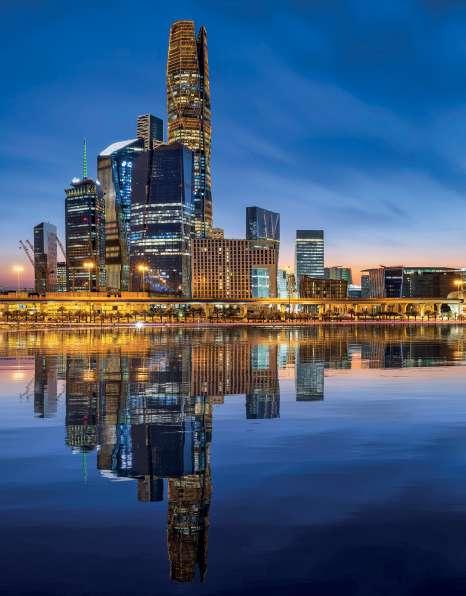
50 Event Wrap
The 2025 Energy, Water & Sustainability Summit featured a broad focus on sustainability in the construction, energy and water segments
66 Comment
Only projects that marry luxury with a holistic approach to wellbeing stand to win says WalkThru Contracting's Bachar Gebran
80 Final Update
Bhatia General Contracting has handed over 1050 villas in Al Khawaneej 2, Dubai
BPME's Jason Saundalkar talks to Grundfos' Abdulaziz Daghestani about the pressing issue of quenching the Kingdom's immense requirements for water
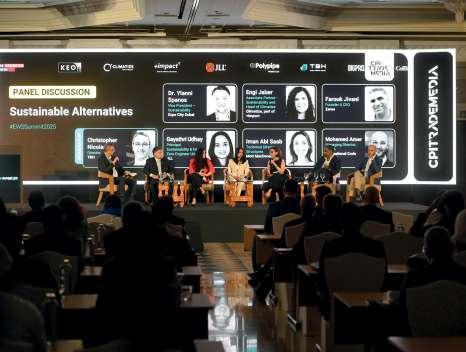
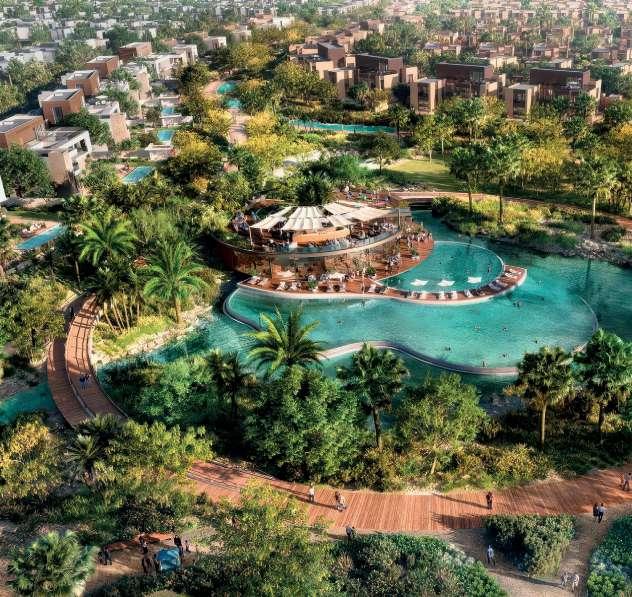
The value of ACI membership has never been greater. Our top fi ve benefits for the region are:
• Webinars and on-demand courses
• ACI Practices (includes all ACI guides and reports)
• Concrete International and ACI Journals
• Connections with over 30,000 global concrete industry professionals
• Discounts on ACI’s Codes and Specifications (including SI Units)
ACI membership is your most valuable resource in the concrete industry. Join the premier world community dedicated to the best use of concrete.
“ACI is the premier organization for the concrete industry. Becoming an active member will enhance anyone’s professional career.”
—John F.
ACI Membership means high value.
ACI members know it.
Join now at concrete.org.
GROUP
MANAGING DIRECTOR Raz Islam
DIRECTOR OF FINANCE & BUSINESS OPERATIONS Shiyas Kareem
PUBLISHING DIRECTOR Andy Pitois
EDITORIAL
HEAD OF CONTENT Jason Saundalkar
ASSOCIATE EDITOR Priyanka Raina
ADVERTISING
SALES DIRECTOR Arif Bari
STUDIO
ART DIRECTOR Simon Cobon
GRAPHIC DESIGNER Percival Manalaysay
PHOTOGRAPHER Maksym Poriechkin
CIRCULATION & PRODUCTION
DIRECTOR OF MARKETING & MEDIA OPERATIONS
Phinson Mathew George
PRODUCTION & IT SPECIALIST Jarris Pedroso
MARKETING
MARKETING & EVENTS EXECUTIVE Lakshmy Manoj
SOCIAL MEDIA EXECUTIVE Franzil Dias
WEB DEVELOPMENT
SENIOR DIGITAL MANAGER Abdul Baeis
WEB DEVELOPER Umair Khan
FOUNDER Dominic De Sousa (1959-2015)
raz.islam@cpitrademedia.com
shiyas.kareem@cpitrademedia.com andy.pitois@cpitrademedia.com
jason.s@cpitrademedia.com priyanka.raina@cpitrademedia.com
arif.bari@cpitrademedia.com
simon.cobon@cpitrademedia.com percival.manalaysay@cpitrademedia.com maksym.poriechkin@cpitrademedia.com
phinson.george@cpitrademedia.com jarris.pedroso@cpitrademedia.com
lakshmy.manoj@cpitrademedia.com franzil.dias@cpitrademedia.com
abdul.baeis@cpitrademedia.com umair.khan@cpitrademedia.com
When you have finished with this magazine, please recycle it
The publisher of this magazine has made every effort to ensure the content is accurate on the date of publication. The opinions and views expressed in the articles do not necessarily reflect the publisher and editor. The published material, adverts, editorials and all other content are published in good faith. No part of this publication or any part of the contents thereof may be
© Copyright 2025. All rights reserved.


ON THE COVER The 2025 Digital Construction Awards gala took place on 24 June at the Ritz Carlton JBR, Dubai, and recognised excellence across a total of 16 distinct categories
MEConstructionNews.com
@meconstructionn
MEConstructionNews
me-construction-news







PROPERTY
Taraf appoints Pinnacle International as contractor for KARL LAGERFELD villas
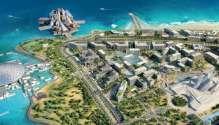
INDUSTRY
Oia Properties expands presence with new Office in Abu Dhabi

INDUSTRY
CVC and Tabreed acquire PAL Cooling Holding from Multiply Group

CONSTRUCTION
Palma Development appoints APCC for shoring and piling works at West Residence

PROPERTY
Meraas unveils next chapter of City Walk Crestlane

EXPERTS: Public transport links and the rise of sustainable tourism

EXPERTS: The influence of invisible design

OPINION: Why is Disney building its first park in 15 years in Abu Dhabi?
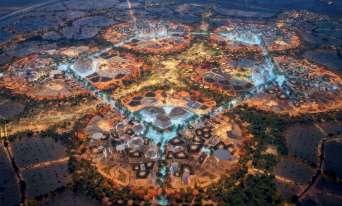

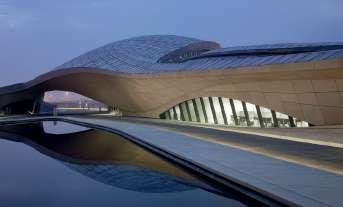
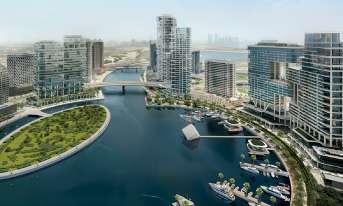
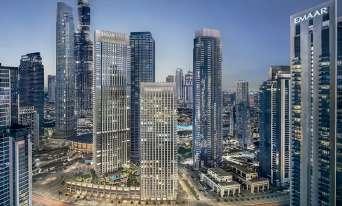
INDUSTRY
PIF launches Expo 2030 Riyadh Company
The company will develop Expo as a model for sustainable tourism, and preserve the event’s legacy and is projected to contribute $70 billion to Saudi’s GDP

PROPERTY
Bvlgari Hotels & Resorts signs long-term agreement with Eagle Hills
INFRASTRUCTURE
Dutco and Sweid & Sweid launch
Terralogix logistics park
The project will serve as a pivotal node in Dubai’s comprehensive supply chain infrastructure
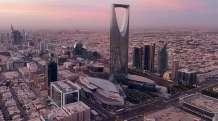
INFRASTRUCTURE
Saudi
Ports
INFRASTRUCTURE
BEEAH expands into real estate development
BEEAH’s expansion into real estate development positions the organisation as a comprehensive innovator, aligning with national efforts towards a smart, sustainable, and diversified economy
PROPERTY
OMNIYAT acquires Marasi Bay Island in the Burj Khalifa District
The developer’s vision for an ultraluxury waterfront destination blends high-end living, premium workspaces, five-star hospitality, leisure, and wellness experiences
TECHNOLOGY
Emaar Properties launches digital resale platform for Emaar Homes
VYOM was created to safeguard both investors and sellers and empowers homeowners to directly list properties and connect with prospective buyers, eliminating the need for intermediaries
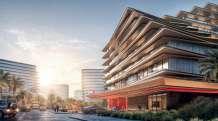

CONSTRUCTION
Shamal awards main works contract for


ALEC Holdings reaffirms commitment to excellence and sustainable growth
The firm’s 2024 ESG report covers the period from 1 January 2024 to 31 December 2024 and relates to the company’s UAE and KSA operations
ALEC Holdings (ALEC) has published the latest version of its Environmental, Social and Governance (ESG) and Sustainability report, which is said to underscore the company’s commitment to responsible growth and sustained operational excellence across its UAE and KSA operations.
The firm said it was recently awarded the Dubai Chamber of Commerce ESG Label and earned the ‘Committed’ sustainability badge from EcoVadis. The EcoVadis assessment covered 21 criteria across Environment, Labour & Human Rights, Ethics, and Sustainable Procurement, further validating ALEC’s robust ESG posture.
Barry Lewis, CEO at ALEC Holdings commented, “We take pride in the results which showcase our maturing sustainability strategy that’s fully integrated into our business model - not as a compliance exercise, but as a lever for resilience and regional growth. As ALEC continues to deliver complex, high-value projects across the region, our ESG commitments serve as a key enabler of operational excellence and stakeholder trust.”
“Our 2024 report reflects the tangible progress we’ve made in enhancing transparency, building workforce resilience, and embedding sustainability into every level of the business — from our project sites to the boardroom,” he explained.
ALEC’s reputation for governance and compliance was further reinforced this year by the rollout of ‘ALEC ALERT’, which is said to be a secure whistleblowing platform enabling employees, subcontractors and vendors to report unethical conduct anonymously.
With 73.5% of staff (not including TARGET staff) in the UAE and KSA completing ethics training, ALEC is fostering a culture of accountability that supports robust decision-making. This ethical foundation directly contributes to transparent financial practices and sound business stewardship, offering confidence to partners and stakeholders alike, the firm explained.
ALEC said it has also completed a comprehensive double materiality
assessment - a significant step in refining its ESG priorities. By engaging a wide array of internal and external stakeholders including employees, investors, clients, auditors, consultants, and community partners, the company ensured its ESG and decarbonisation approach reflects evolving risks, opportunities, and expectations.
LEADING THE WAY
The emphasis on governance is matched by ALEC’s investment in people. In 2024, more than 4,600 workers were trained at ALEC’s dedicated trade skills facility, contributing to a healthy pipeline of internal promotions from labour to staff roles and measurable employee
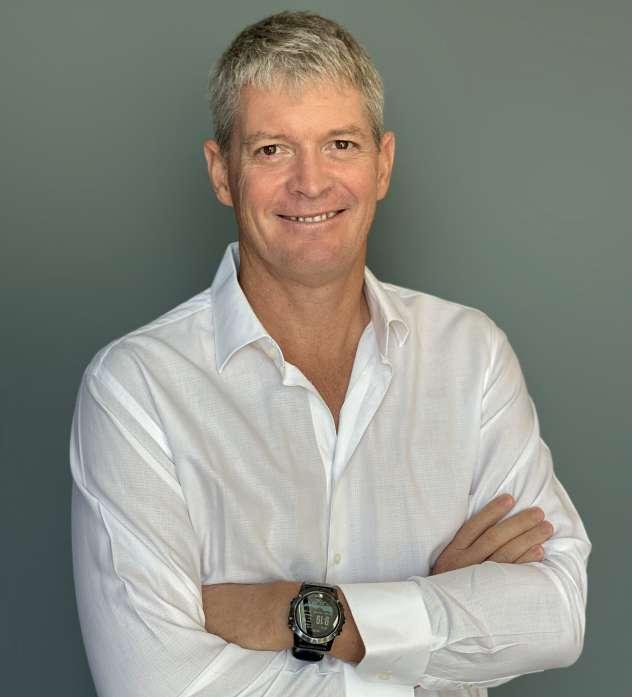
Over 1,100 employees participated in CSR activities last year, contributing more than 548 volunteering hours that positively impacted over 6,300 people.
career advancement. With 68 nationalities represented and nearly 40% of managers (not including TARGET staff) having completed gender diversity training, ALEC is building an inclusive workforce that reflects the increasingly global nature of clients and communities it serves, the firm highlighted.
“Talent is one of the most critical assets for a business like ours, and our ability to attract, retain and grow top-tier professionals directly impacts the quality of what we deliver. By investing in both upskilling and wellbeing, we ensure ALEC remains an employer of choice — and a partner
clients can rely on to bring visionary projects to life,” Lewis continued.
ALEC said it has also taken impactful steps to decarbonise operations and strengthen climate resilience across its assets and operations. Most of the company’s offices and factories in the UAE and KSA were refurbished in 2024, not just to improve energy and water efficiency, but also to enhance workplace experience.
With solar-diesel hybrid generators and battery energy storage systems deployed at four project sites, ALEC said that it is reducing its dependence on fossil fuels to power its sites, while enhancing operational efficiency. These efforts align with national renewable energy strategies in both major markets for the company. Eight ALEC projects achieved LEED certification and five received a Pearl Estidama rating, with more under review, it confirmed.
Beyond operations, ALEC said that it continues to play an active role in enriching communities. Over 1,100 employees participated in CSR activities last year, contributing more than 548 volunteering hours that positively impacted over 6,300 people. Through partnerships with Dubai Cares, SmartLife (NPO/NGO) and Emirates Red Crescent, ALEC confirmed that it directed hundreds of thousands of dirhams towards education, labour welfare, and humanitarian initiatives in the UAE, Saudi Arabia, South Africa, and Nepal.
“As we target an aggressive phase of regional growth, we believe our ESG strategy not only protects value, but actively drives it. Our goal is to set the benchmark for sustainable construction operations in the Middle Eastdelivering world-class projects while raising the bar for ethics, environmental responsibility and workforce empowerment,” Lewis concluded.


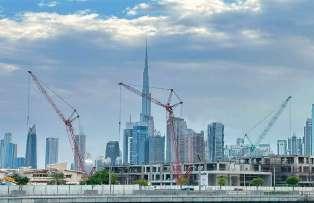

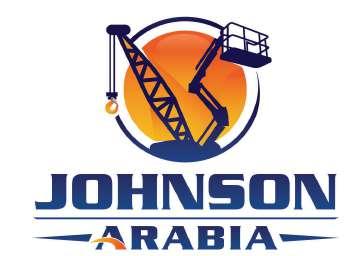
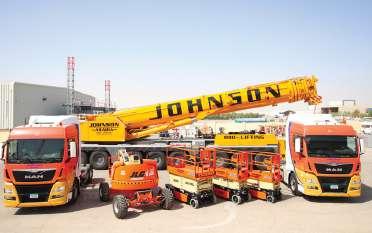
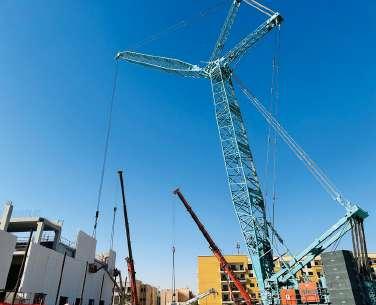

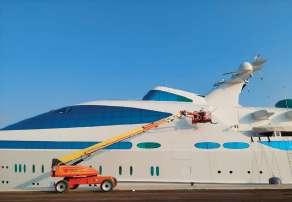
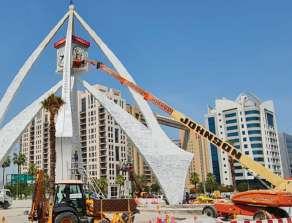











A nursery contract has been awarded to Barari Natural Resources, while Innovo Build has been awarded a contract for Phase 1 and 2 of Ghaf Woods

Majid Al Futtaim has announced two milestones for its forest living concept, Ghaf Woods. These milestones include the establishment of a dedicated tree nursery to support the project’s biophilic design concept and the appointment of Innovo Build as the primary contractor for its initial two phases.
Ghaf Woods, billed as a model for sustainable forest living in Dubai, will be the cornerstone of this vision. Over the next 18 months, the nursery will grow and nurture thousands of native and climate resilient tree species. Currently, it houses over 10,000 trees, with the figure expected to reach 20,000 by May 2026 and 105,000 shrubs by the same time. By the end of this period, the nursery will expand to accommodate up to 30,000 trees, which will then be transported and replanted across Ghaf Woods.
As part of this journey, the US $13.2mn nursery contract has been awarded to Barari Natural Resources, part of Mawarid Holding Investment, who will manage and oversee tree care and cultivation throughout the journey. The facility will be home to a diverse selection of climate-suitable species, including Acacias, Citrus, Ficus, Melia, Phoenix, Tecomella, Ziziphus, and the iconic Ghaf. All species have been procured from Egypt (Nile Delta), India, Thailand, and the UAE – including Fujairah, Sharjah, Ras Al Khaimah, and Abu Dhabi.
Ghaf Woods is said to be revolutionising the concept of living in harmony with nature. The development’s forest ecosystem will surpass the number of residents, serving as a vital ‘Green Lung’ that purifies the air by up to 20% and lowers temperatures by up to
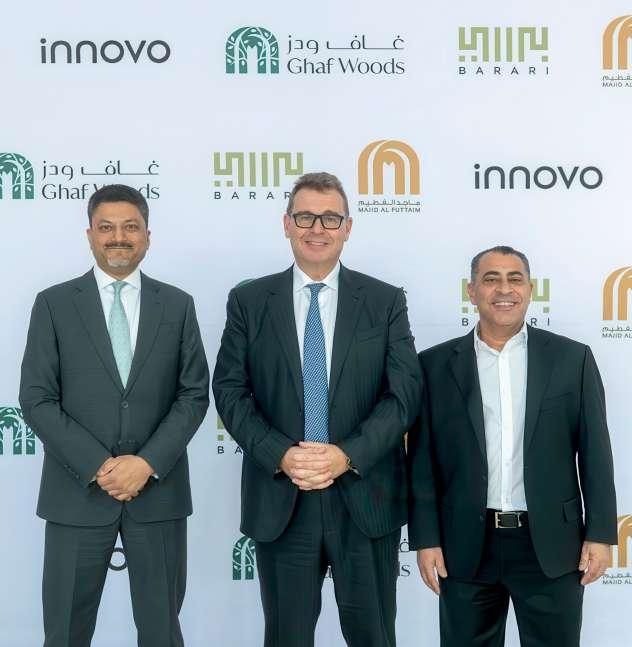
five degrees Celsius compared to other parts of the city. The trees will play a crucial role in mitigating soil erosion, conserving water, and creating shaded pathways and green corridors throughout the community.
Ahmed El Shamy, CEO of Majid Al Futtaim Properties said, “The concept of Ghaf Woods has been years in the making with a vision for sustainable living at the core. Since its unveiling one year ago, there’s been a clear and growing demand from people who are looking for communities that foster a deeper connection with nature and the environment. Our investment in a purpose-built tree nursery, and the partnership with Barari Natural Resources and
Innovo Build has been awarded a $463mn contract for Phase 1 and Phase 2 of Ghaf Woods, including the construction and completion of 13 buildings.
Mawarid Holding Investment, is a vital step in bringing this vision to life. We’re also proud to be working with Innovo Build on the delivery of the Celia, Serra, and Lacina clusters. It is through collaborations like these that we are setting a new benchmark for how nature, lifestyle and premium living can meaningfully coexist.”
Kashif Shamsi, Group Chief Executive Officer, Mawarid Holding
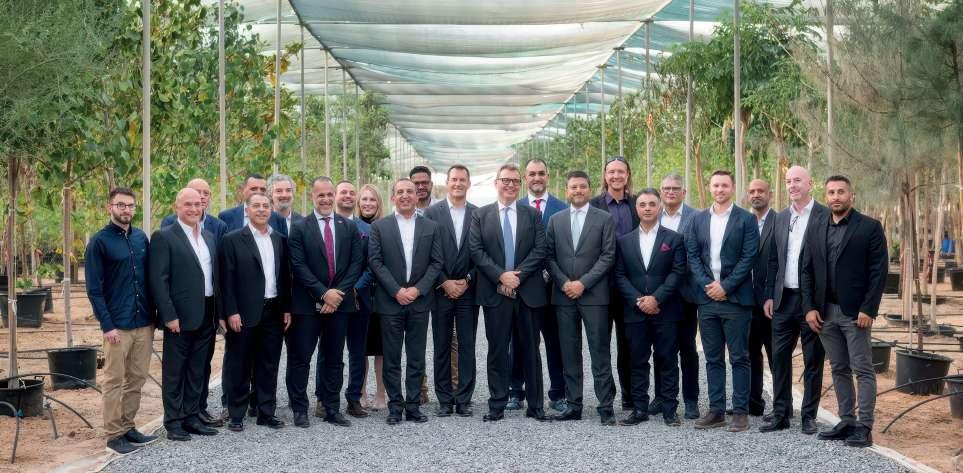
Ghaf Woods promises residents eight kilometres of walking trails, a three-and-a-half-kilometre biking loop, resort-style pools, fitness facilities, family-friendly gardens, and a yoga pavilion.
Investment added, “This nursery is a critical foundation for the forest ecosystem at Ghaf Woods. Our focus is not only on scale but also on biodiversity, resilience, and ensuring every tree contributes meaningfully to the project’s long-term environmental impact. As one of the largest plant nursery operators in the GCC, we are proud to collaborate on one of the region’s most forward-looking developments, and excited to see the landscape grow from the ground up.”
Contract Award
In addition, Innovo Build has been awarded a $463mn contract for
Phase 1 and Phase 2 of Ghaf Woods, including the construction and completion of 13 buildings with a shared podium level across the Celia, Serra, and Lacina clusters. Known for their expertise in sustainable, highquality developments, Innovo Build’s portfolio spans luxury residences, villa communities, educational institutions, and critical infrastructure.
With sustainability at the heart of its operations, Innovo Build will focus on Ghaf Woods’ forest living concept, blending contemporary architecture with immersive natural surroundings to create a new standard for urban living in Dubai, the statement added. Sameh Fam, Chief Executive Officer, Innovo Build commented, “We are proud to partner with Majid Al Futtaim to deliver the early phases of a development as visionary as Ghaf Woods, a project that reflects our shared commitment to innovation, sustainability and communitycentric design. This project redefines
traditional construction, and requires us to build in harmony with nature, not around it. Our team will approach this landmark development with the precision, care and focus on sustainability that cements us as a contractor of choice in UAE.”
Spanning 738,000sqm off the Sheikh Mohamed bin Zayed Highway, near Global Village, Ghaf Woods will feature over 7,000 premium units, including one-, two-, and threebedroom residences and penthouses. Prioritising resident wellness, Ghaf Woods promises residents eight kilometres of walking trails, a three-and-a-half-kilometre biking loop, resort-style pools, fitness facilities, family-friendly gardens, and a yoga pavilion. The new residential community will also be home to Majid Al Futtaim’s signature multipurpose hub, Distrikt, which features a curated selection of retail and farm-to-table dining experiences, the developer concluded.

Dubai Islands is a waterfront destination that aligns with the Dubai 2040 Urban Master Plan
Nakheel has unveiled the final phase of Bay Grove Residences on Dubai Islands, the development follows the sale of the previously released waterfront residential units. Bay Grove Residences on Island B is said to be a blend of beachside living and city life, enhancing Nakheel’s premium living destination.
This phase of the Bay Grove Residences on Island B comprises four buildings designed in a contemporary architectural style. It offers 257 urban residential units including: one-, two-, three-, and four-bedroom apartments, as well as a penthouse. The penthouse stands out as the only residence
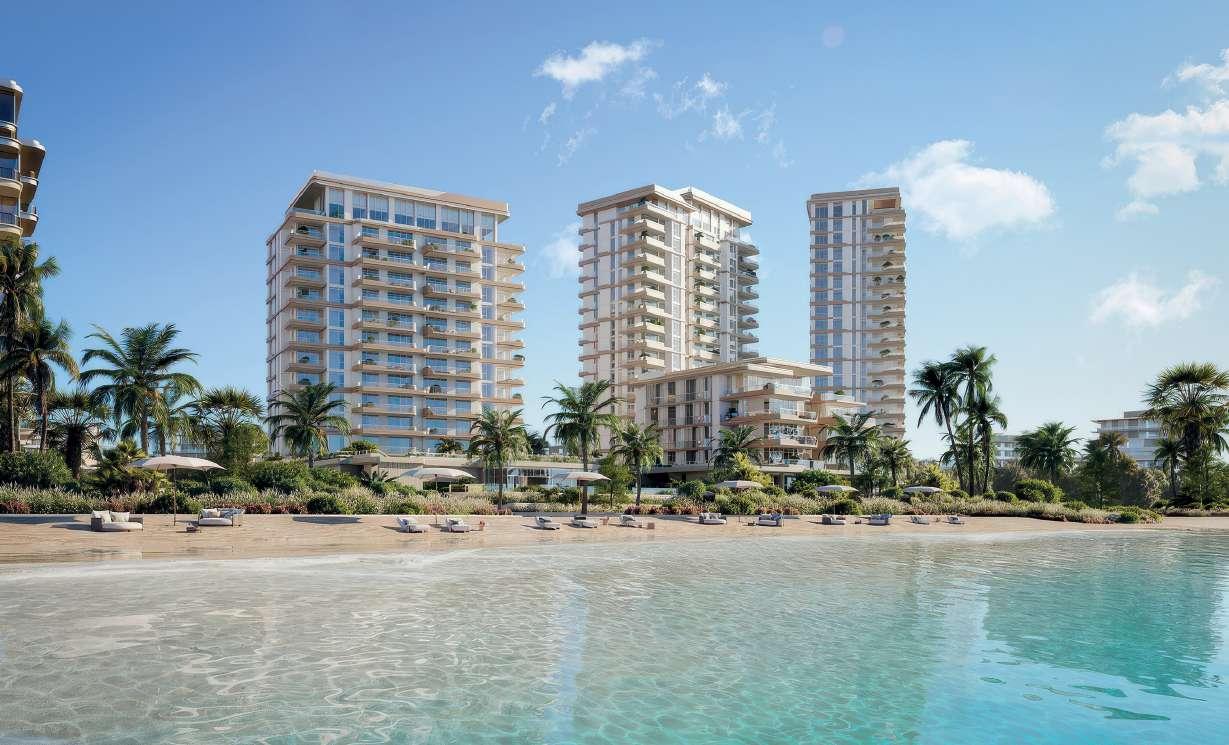

of its kind in the entire Bay Grove collection, said a statement.
Inside, the open-plan living and dining area with double height ceilings and floor-toceiling windows fosters a bright and airy atmosphere. The space transitions to a large terrace, ideal for entertaining, while offering 360-degree water views of openness and connection to the surroundings. Details such as custom joinery and stylish screens, add character and elegance to the residence. The primary suite features a walk-in closet, comfort with practical design, the statement outlined.
Offering access to Crystal Beach and situated near Marina Beach, each residential unit at Bay Grove Residences provides panoramic views of the Arabian Gulf. This ensures residents can enjoy a beachfront
lifestyle with shoreline amenities. The residential development is also said to be set across a lush green podium, offering access to an infinity lap pool, a family pool, and a host of designed amenities. These include a clubhouse, fitness centre, yoga space, kids’ club, and pet wash area. The latest phase combines contemporary design with coastal living at its finest, the statement added.
Nakheel notes that residents at Bay Grove Residences can enjoy a swimmable beach and boardwalk, complemented by a community park and jogging and cycling paths. This promotes a balanced lifestyle within the location. Bay Grove Residences presents a vibrant residential ecosystem and is being created as a community with ample living spaces and a well-rounded lifestyle. It is pet-friendly and combines comfort, convenience, and connectivity, it explained.
Waterfront Living
Dubai Islands is billed as a visionary waterfront destination that aligns with the Dubai 2040 Urban Master Plan.
Once fully complete, the project will feature open spaces, parks, and golf courses overlooking the Arabian Gulf. The residential development comprises five islands covering a total area of 18.6sqm. Over 20km of beaches offer waterfront living, resorts, and cultural hubs within a short distance of Downtown Dubai, Dubai International Airport, and marine ports, the statement from Nakheel concluded.
PHASED LAUNCH
The final phase of Bay Grove Residences will feature 257 residential units including one-, two-, three-, and four-bedroom apartments, as well as a penthouse.
Ecocem has announced plans to establish a new plant to manufacture its ACT low-carbon product. The new ACT plant will be built at Ecocem’s existing factory next to ArcelorMittal’s blast furnaces in Dunkirk, France. It will have the capacity to produce up to 300,000t of ACT annually, boosting the Dunkirk plant’s production capacity to more than a million tonnes per year.
The plant will serve as Ecocem’s inaugural factory dedicated to producing the new product.

ACCIONA as part of a consortium with DHCU has been selected by the Construction Authority for Potable Water and Wastewater (CAPW) in Cairo, Egypt, to manage the operation and maintenance of Phase II of the Gabal El Asfar wastewater treatment complex for eight years.
The US $37.45mn contract covers the execution of various rehabilitation works, as well as upgrades on two plants of the complex, each with a daily capacity of 500,000m3.
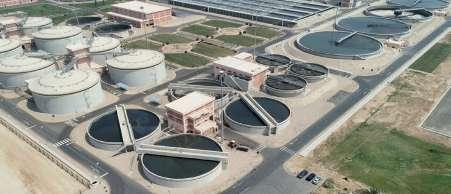
Kuwait’s Aventura (J3) urban development project’s construction is progressing with its residential component 82% complete and a year ahead of schedule, its developers have said. Situated in the 12.5sqkm Jaber Al-Ahmad City on the outskirts of Kuwait City’s capital area, the project aims to enhance Kuwait’s residential, commercial, and leisure offerings. It is being developed by Mabanee Company under a PPP with the Public Authority for Housing Welfare.

Bahrain Marina Development Company has appointed CBRE Bahrain to oversee the retail units within the project. CBRE Bahrain said that it will develop a comprehensive leasing strategy that includes selecting the optimal mix of brands, planning the commercial area, and implementing occupancy strategies.
Spanning an area of approximately 250,000sqm, Bahrain Marina boasts 128 retail units spread across high-end retail outlets, international restaurants, and renowned cafes.

05 SAUDI ARABIA
Hilton has reiterated its commitment to Saudi Arabia, stating that it is on track to operate and pipeline 100 hotels this year. The move reflects its long-term dedication to growth in the Kingdom.
Hilton said it is actively introducing more of its award winning brands to the country, with 14 brands currently trading and in the pipeline. As part of its growth strategy, the company anticipates multiple new signings, aiming to add over 21,000 rooms across various locations in Saudi Arabia.
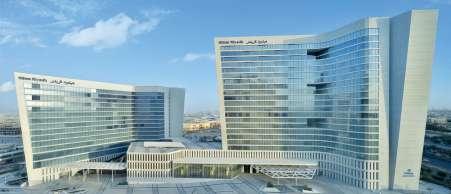
Balfour Beatty’s southeast Asian subsidiary, Gammon, has secured a US $192mn contract to build a residential development in Hong Kong. The Top Oasis consortium contracted Gammon to build the 33-storey residential tower, which will provide 792 apartments above the city’s existing MTR metro line.
Gammon will adopt Design for Manufacture and Assembly methods, fabricating individual structural steel components offsite. This approach aims to ensure the project’s safe and efficient delivery.

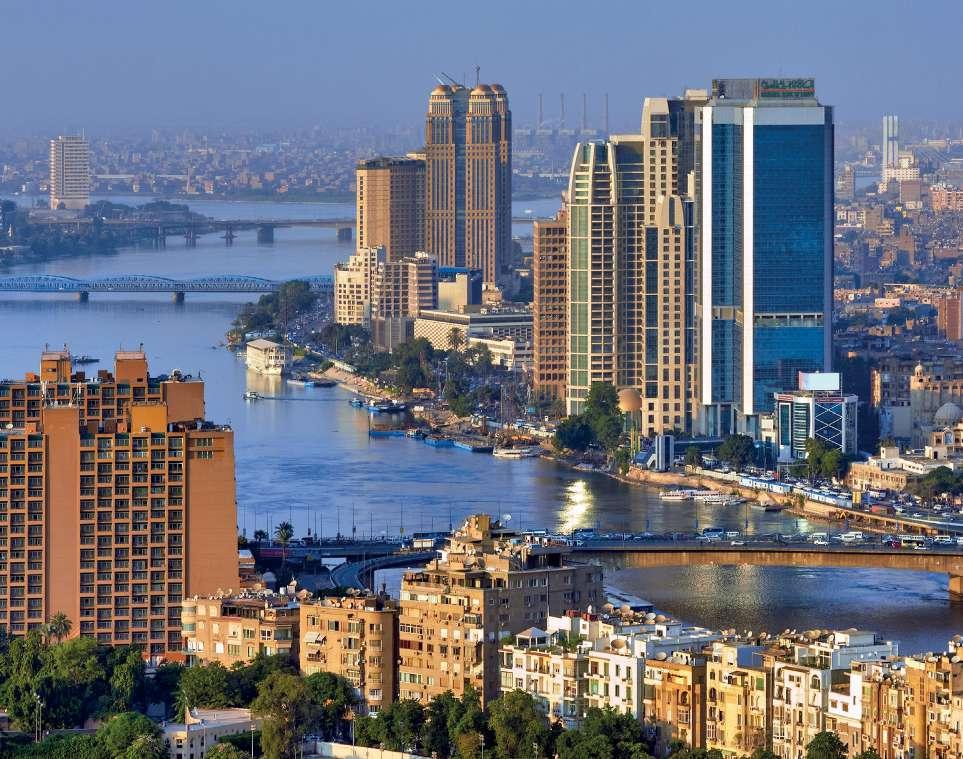
JLL discusses the performance of Cairo’s residential, commercial, retail and hospitality segments in Q1 2025
Cairo's residential market kicked off the year with strong momentum, witnessing the delivery of approximately 7,500 units in the first quarter. This additional stock brought the city's total residential stock total to about 301,100 units, reflecting the sector's continued growth and development. The coming nine months are expected to see the completion of an additional 28,500 new units, primarily concentrated in East Greater Cairo.
Cairo's residential market performance experienced continued growth in Q1 2025, albeit at a more moderate pace compared to the previous year's triple-digit increases. This deceleration reflected stabilising currency exchange rates and a significant drop in inflation to 13.6% in the year to March 2025. Sales prices in 6th October and New Cairo rose by an average of 89.4% year-on-year. Similarly, during
the same period, rental rates in these areas increased annually by 90.2% and 88.2% respectively,
An emerging trend reveals prospective home buyers opting to rent in upscale neighbourhoods, in order elevate their living standards, where such areas are often beyond their purchasing power. This shift is incentivising property owners to lease rather than dispose of their residential units. Consequently, the rental market has gained appeal for both tenants pursuing better living standards and landlords aiming to maximise returns on their real estate investments.
The residential market is expected to remain resilient, driven by robust local and foreign demand and improving economic conditions. That said, rising living costs have shifted preferences towards smaller, budgetfriendly, finished units within mixeduse developments offering ‘live-workplay’ environments. Developers who adapt to these changing demands by phasing out larger masterplans and replacing shell-and-core villas with fitted townhouses and apartments are
likely to outperform. This flexibility in product offerings, coupled with amenity-rich developments and ample open spaces, will be key to success in Cairo's evolving residential landscape.
The first quarter of 2025 witnessed the completion of about 10,500sqm of leasable office space in Cairo, bringing the total office stock to approximately 2.20m sqm. An additional 615,300sqm of office space is expected to enter the market during the remainder of the year. Upcoming Grade A developments aim to narrow the supply demand gap in this segment. Concurrently, the majority of the upcoming Grade B supply is concentrated in the New Administrative Capital, driven by second-tier developers. Looking at performance, average Grade A office vacancy rates dropped to 8.6%, down from 10.9% in the previous quarter. More so, average Grade A and prime rents increased by 4.7% and 2.9% year-on-year, respectively. Landlords maintained leverage due to limited high-quality
options. Notably, parking facilities emerged as a critical factor in lease negotiations, this trend is prompting developers to incorporate structured podium parking into the design of new development projects.
Looking ahead, the office sector's outlook remains optimistic, particularly for flexible workspaces. Unlike traditional offices, which are thriving mainly in New Cairo, these versatile spaces are gaining traction across the city, including central areas, as they are attracting a diverse clientele, from artists and musicians to startups, drawn by their affordability and adaptability. As businesses increasingly seek dynamic work environments, the co-working industry is set for continued growth, playing a vital role in meeting Cairo's evolving business needs. Moreover, integrating sustainability features into upcoming office projects is becoming a key differentiator for Cairo's property owners. A prime example of this trend is MAF's recent announcement of Junction West Cairo, a new
business hub project set to deliver 13 office buildings, all designed to meet LEED Gold Certification standards, demonstrating the country’s growing interest in sustainable developments.
Cairo's retail sector recorded modest growth in Q1 2025, adding 27,000sqm of new space and bringing the total stock to 3.22m sqm. Over 362,300sqm of gross leasable area (GLA) is expected to be added in the remainder of the year, although actual materialisation
may reduce this total. Eastern Greater Cairo, particularly New Cairo and the NAC, emerged as focal points for retail expansion, featuring new spaces in business parks, existing project expansions, and community malls.
The sector continued its gradual recovery with regards to performance, with improved sales, footfall, and occupancy rates. The average vacancy rate decreased to 7.2% in Q1 2025, down from 9.2% the previous year. Smallerscale outdoor developments offering F&B and entertainment concepts
outperformed larger formats, aligning with shifting consumer preferences.
Annual rent escalations and inflation drove increases in average rents across the city in the first quarter. Indeed, prime and super-regional malls registered an average of 7.4% y-o-y rise, while community malls experienced an 11.4% increase. Despite these hikes, the market remained tenant-friendly, with landlords offering incentives such as CapEx contributions and rental reductions to attract and retain tenants.
The retail sector's prospects appear positive, bolstered by a significant moderation in inflation to 13.6% y-o-y to March 2025 down from 33.3% a year earlier. This decline is expected to alleviate consumer financial pressures and stimulate spending.
The retail landscape continues to evolve, with an increasing emphasis on innovative leisure and entertainment offerings. Shopping centres are transforming into multipurpose venues, hosting concerts and sports events to boost foot traffic and extend dwell times. This shift towards experiential retail is likely to accelerate as developers incorporate unique concepts to attract patrons.
While local brands are likely to maintain a strong physical presence, some landlords are creating their own retail groups to introduce international franchise brands, particularly in the F&B sector. This strategy is expected to pave the way for new innovative concepts to enter the market, further diversifying Cairo's retail offerings and enhancing its appeal to both local and international consumers.
Cairo's hospitality supply increased in Q1 2025 with the addition of two new five-star properties. The Hilton Cairo Nile Maadi Hotel and Sofitel Cairo Downtown Nile in West Cairo introduced approximately 870 keys, expanding the total hotel stock to 27,800 keys. Market projections indicated an additional 650 keys in the four and five-star segments will enter the market by year-end.
The hospitality sector maintained its robust performance in the first quarter of 2025. STR Global data revealed occupancy rates decreased slightly by 0.7-percentage points (PP) year-on-year through to March 2025. However, the average daily rate (ADR) soared by 30.5% compared to the previous year. Consequently, revenue per available room (RevPAR) experienced a substantial growth of 29.11% annually. These metrics underscore the sector's continued strength and positive trajectory.
Egypt's position as an affordable tourist destination continues to offer opportunities for budgetfriendly accommodation expansion.
However, a notable shift in tourist demographics, particularly the influx of Middle Eastern visitors, creates a prime opportunity for introducing lifestyle hotels with unique design concepts. This trend may influence renovating hotels to consider such transformations, diversifying Cairo's hospitality offerings. To support its ambitious goal of attracting 30m annual tourists by 2028, Egypt plans to add 250,000 new hotel keys. Additionally, new regulations for short-term rentals aim to enhance safety, cleanliness, and quality standards across the sector. An accreditation system will differentiate approved listings, ensuring transparency for travellers. This comprehensive approach to expanding and regulating accommodation options is expected to provide visitors with a diverse range of high-quality lodging choices. By catering to evolving tourist needs and preferences, Cairo's hospitality sector is positioning itself for sustained growth and improved competitiveness in the global tourism market.






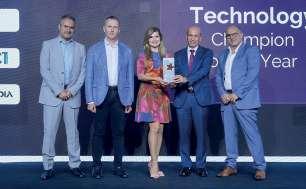

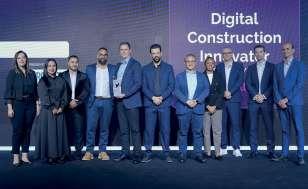

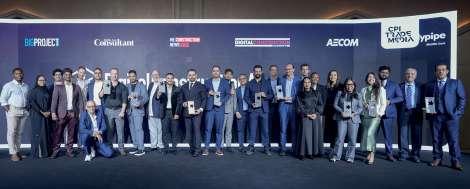







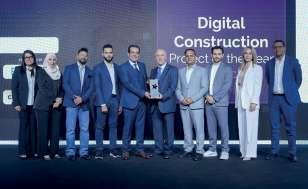
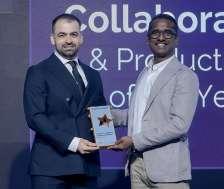


The 2025 Digital Construction Awards gala took place on 24 June at the Ritz Carlton JBR, Dubai, and recognised individuals, projects and companies across 16 distinct categories
The 2025 Digital Construction Awards (DC Awards) marked a milestone for the Big Project Middle East (BPME) team – this edition marked the third anniversary of the construction technology and innovation focused awards program.
To mark this special occasion, the event was held at the Ritz Carlton JBR, Dubai on 24 June – the venue is of course synonyms with the annual Big Project Middle East Awards. Apart from the prestigious venue, the BPME team also revamped the design of the trophies to mark the occasion.
The third edition recognised excellence across 16 distinct categories, with nominations and winners originating from key markets
across the Middle East, including the UAE, Saudi Arabia, Qatar and Egypt. Nominations were submitted from a variety of organisations including government departments, developers, consultants, contractors and suppliers.
The 2025 DC Awards received a little over 100 nominations, following which two rounds of elimination were initiated. The first round was conducted by the BPME editorial team and nominations that stood up to the first round of scrutiny were then passed onto an independent panel of judges. The judges were given a couple of weeks to review the nominations, with an in-person meeting taking place in early June at the Dusit Thani Hotel on Sheikh Zayed Road in Dubai.
The judges for the 2025 DC Awards were:
• Ankita Rao, Co-Managing Director and Lead Architect, Freeline Engineering Consultants
• Karie Akeelah, Partner, Trowers & Hamlins
• Nicky Dobreanu, Operations Director, Omnium International
• Jason Saundalkar, Head of Content, Big Project Middle East
A shortlist was then announced on BPME’s online home, Middle East Construction News, two weeks ahead of the gala dinner ceremony. Those that made the shortlist received commendations on the night, while winners received the newly designed trophy to mark the occasion.




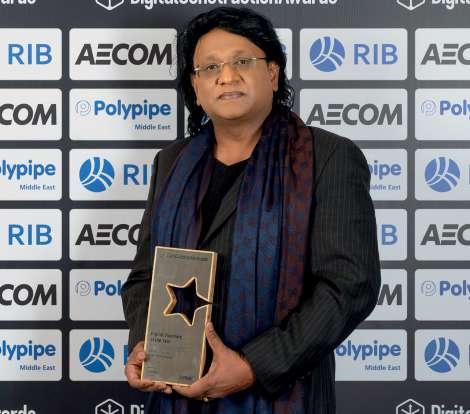
NOMINEES
Ahmad Sharjeel – Al Khoory Solutions
Megan Hughes – XD House
WINNER
Ahmad Sharjeel – Al Khoory Solutions
A total of five nominations were submitted, with the panel of judges compiling a shortlist of just two, with Ahmad Sharjeel receiving the most first choice votes. Sharjeel supported his company’s BIM team in delivering models for high-impact projects, integrating time, cost, sustainability, and facilities management. He developed custom scripts for automation and efficiency, and established quality assurance, control standards and modelling guidelines to ensure deliverables met international construction documentation standards.
“This is my second award and it obviously overwhelms me and gives me the motivation to do more. I'm thankful to all my mentors and teammates for helping me win this award. My future plans involve integrating AI into BIM. In fact a lot of work is going on in my company in which we are trying to incorporate AI in maximising efficiency in production, modelling and everything related to the BIM industry.”
NOMINEES
Ron Nussbaum – BuilderComs
Bilal Dridi – Bureau Veritas Middle East
Senthil M. Kumar – Slate Technologies
WINNER
Senthil M. Kumar – Slate Technologies
The Big Project ME team split this category into three due to over a dozen nominations being submitted, with Slate Technologies' Senthil Kumar scoring the win.
His innovations and enterprise-grade deployments have influenced infrastructure conception, design, and delivery, enabling clients to unlock structural optimisation, productivity gains, and substantial cost efficiencies.
“It's certainly a privilege and feels great to be acknowledged by an elite panel of judges. I think this kind of recognitions certainly motivates us to do more, and we are in the business of building bridges. So, in terms of technology adoption in the industry, we are pioneering some of the latest innovations in AI, so this win is for my team to do more and benefit with this technology.”

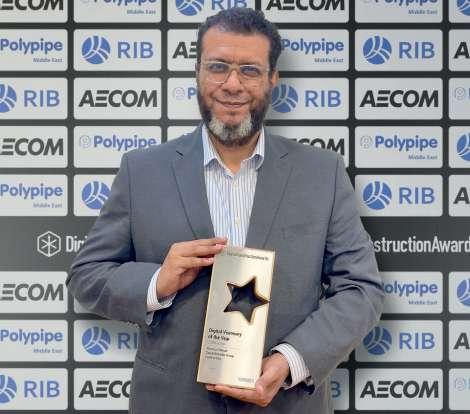
NOMINEES
Hichem Troudi – KEO International Consultants
Marwan AbuEbeid – Turner International
Mohannad Salam – AtkinsRealis
WINNER
Hichem Troudi – KEO International Consultants
The judges reviewed six nominations and four nominations advanced to the second round of eliminations, with KEO's Hichem Troudi scoring the most first choice votes.
“Thanks to the judges for this award. It's not really an individual award in my opinion as this was a team effort. I'm supported by great talents who make my life easier. It's all about having a wider level of impact on the whole supply chain as we are not alone in the market. We are here to support our clients with advisory and everything else, so managing the upgrade of the whole supply chain from clients to contractors is our mission. As consultants we believe we should be taking full ownership and be accountable for this, and hopefully through digitalisation we can accelerate that kind of digital adoption and upgrade the supply chain.”

NOMINEES
Youssry Salman – Saudi Binladin Group – Contracting
Roger Wahl – Innovo Group
WINNER
Youssry Salman – Saudi Binladin Group – Contracting
After two rounds of voting, five nominations were narrowed down to just two. With all the first choice votes tallied up, Saudi Binlading Group - Contracting's Youssry Salman was given the winning nod.
“Winning this award is an incredible honor, and I am deeply grateful for the recognition. With over 20 years of experience in the field, this award is a testament to the dedication, innovation, and relentless pursuit of excellence that my team and I have embraced. Leading SBG - Contracting on a journey from good to great in digital construction has been a rewarding challenge, driven by our commitment to adopting cuttingedge technologies and redefining industry standards. This achievement reflects not only my efforts, but also the collective passion and expertise of a remarkable team that shares my vision for the future of construction. Together, we are building a legacy of innovation, efficiency, and progress.”
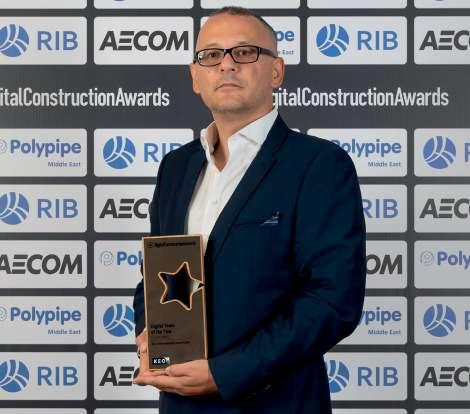

NOMINEES
AECOM
DEWAN Architects + Engineers
KEO International Consultants
WINNER
KEO International Consultants
Ten nominations were submitted and just four made it through the first round of eliminations. After debate, just three made the shortlist with KEO scoring the win.
The digital team’s deep integration and far-reaching impact struck a chord with the judges; over 10,000 hours saved by process standardisation, 500 projects delivered using a common data environment, over 10,000 man-hours saved through cost and time-saving tools.
“We are super appreciative to Big Project Middle East for this award. We have a phenomenal culture at KEO, a high density team where every person looks around and sees exceptional people who are equally driven. This dynamic sets a high standard that fosters trust aligning us to the same goal.”
shared Damir Jaksic, CIO at KEO International Consultants.

NOMINEES
ALEC Saudi Binladin Group – Contracting
WINNER
ALEC
Four teams were considered in the first round, with only two advancing to the second round. The judges chose both teams for the shortlist, with ALEC scoring the win.
ALEC’s achievement include supporting high-impact mega-projects in the UAE and KSA with BIM and digital workflows to enhance delivery, reduce errors, and improve efficiency. The team also enabled the company to achieve BIM Kitemark certification by auditing project teams annually for compliance and consistency. They have also scaled their digital impact through tools like Morta, Power BI dashboards, and Revizto integrations, automating reporting and reducing manual effort by 75%.
Andy Boutle, Head of Digital Construction at ALEC said, “I'm delighted! I wanted to win in this category because the team is fantastic, and they put so much effort in and we're achieving results, so I am very happy to win this award.”

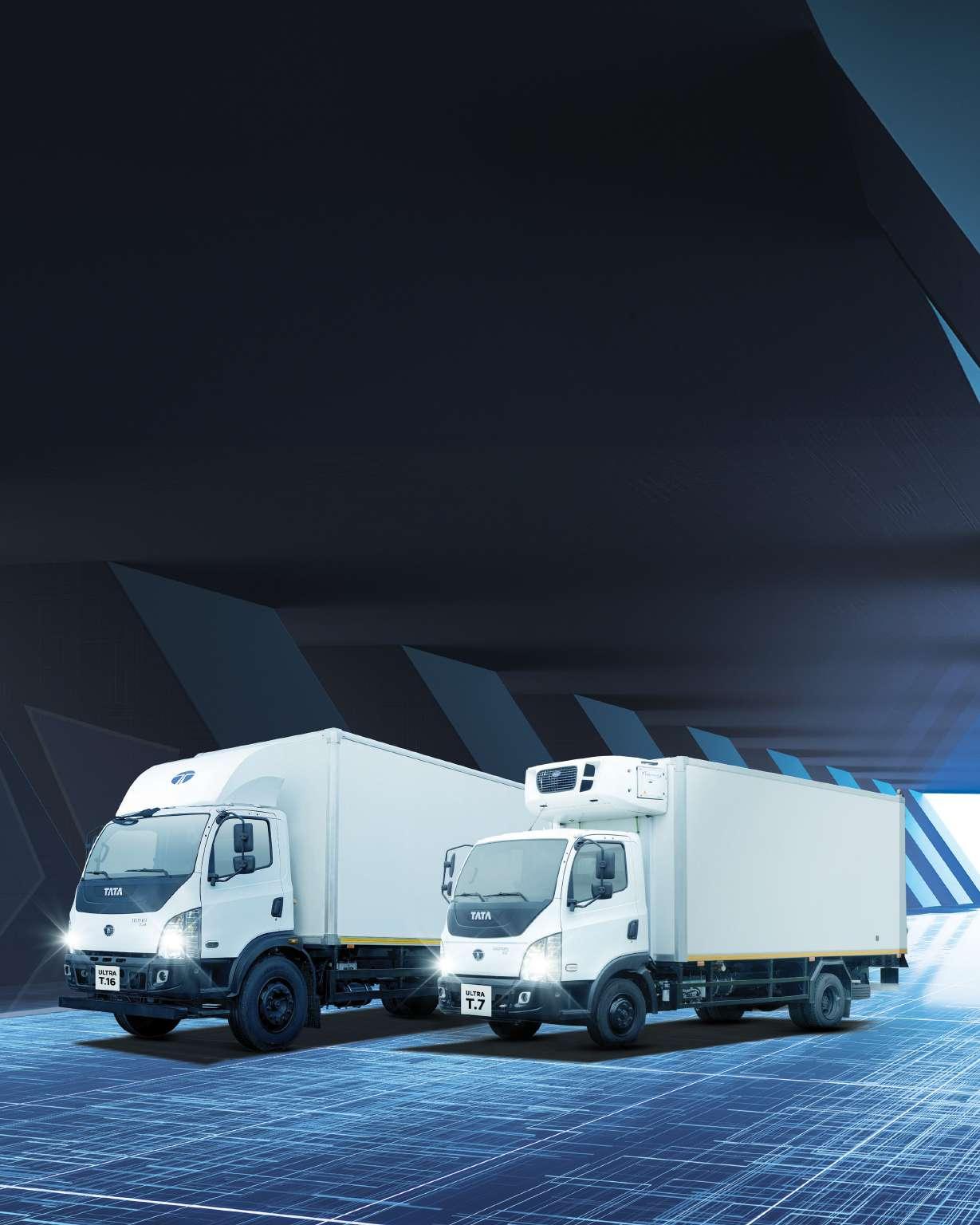

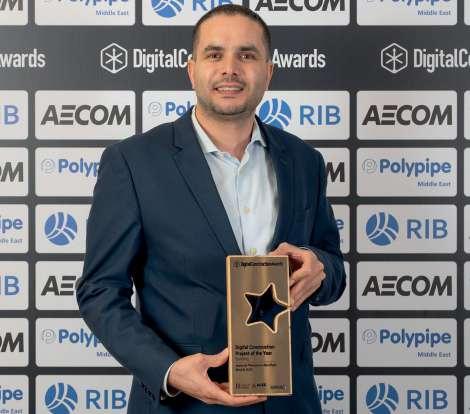


The Municipality and Islamic Affairs Building –KEO International Consultants
teamLab Phenomena Abu Dhabi – Miral & ALEC
Shebara Resort – Red Sea Global NOMINEES
WINNER
teamLab Phenomena Abu Dhabi – Miral & ALEC
Four nominations made it to the second round of eliminations with Miral & ALEC securing the most first choice votes.
The project began with a robust BIM strategy aligned with the client’s digital protocols, backed by ISO 19650-1 & 2 certified frameworks. Advanced digital workflows, including scan-to-BIM, 4D simulation, AR/VR tools, and cloud-based platforms, ensured complex coordination challenges were overcome. On-site, digital tablets replaced paper, providing real-time data access, while HoloBuilder and drone-based monitoring enhanced visibility and accuracy.
Wajdi Mereb Senior Manager at Miral shared, “We feel excited that after the process of applying digital construction methods we were able to win this award on this special night.”
NOMINEES
Dual-Model AI Optimisation for RO Desalination Infrastructure – ACCIONA
Al Laim Project – AECOM
WINNER
Al Laim Project – AECOM
Five nominations were submitted with two advancing to the second round and both were deemed worthy of the shortlist. Following debate, the Al Laim Project by AECOM scored the most first choice votes.
The project used advanced solutions for efficiency, sustainability, and resilience; its infrastructure included: roads, stormwater systems, street lighting, sewerage, potable water, and irrigation. AECOM said that during construction, the ‘Rolling Wave Planning’ method monitored and controlled progress, focusing on near-term activities, while maintaining flexibility in the overall timeline.
“We are happy and proud for winning this award; we need to go through and do more digital work, now that the whole world is doing the same,” commented Muhammad Hamza, Senior Resident Engineer, AECOM, Al Ain Branch.
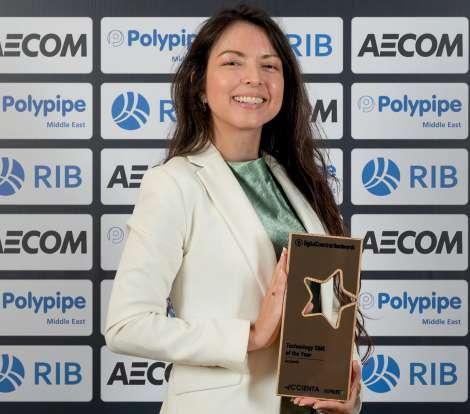


Three nominations were submitted to this particular category, but the Big Project Middle East editorial team found one that stood out right from the start, with a strong nomination that surpassed all the other contenders by a significant margin.
The other nominations were also deemed not strong enough to be recognised on the shortlist, and thus Accienta was chosen as the winner in the 'Technology SME of the Year' category for the second year running.
Accienta's nomination highlighted its continuous growth in the UAE and GCC region. Since its founding it has established itself as an enabler of digital transformation across several key sectors including construction, energy, and transportation, highlighting the company’s capabilities and the commitment of its team.
Carolina Fong Guzzy, Co founder and Digital Engineering Manager at Accienta shared, “We are so proud that we won the award. This win is for our team, our valued clients, partners and everyone who believed in us. Our plan now is to continue the expansion of innovation in the construction industry and beyond.”
Three nominations were submitted for consideration to this category, however the team identified a clear winner in the first round of eliminations itself. Similar to the previous category, the other nominations did not impress the editorial team enough to make the shortlist, thus Saudi Binladin Group - Contracting was chosen as the winner.
Ahmed Gadelhak, Senior Director IT at Saudi Binladin Group - Contracting expressed, "Winning the Data Champion of the Year award is both an honor and a powerful affirmation of our vision at Saudi Binladin Group. This recognition underscores the impact of our digital platform Intelaqa, which was born out of a real need to unify, simplify, and empower data-driven decision-making across our projects. To see it acknowledged on such a respected stage reinforces that we are not only moving in the right direction - but helping to set a new benchmark for how construction can harness information to build smarter, faster, and with greater foresight. More than anything, this award belongs to the dedicated team behind the scenes who believed in the vision and brought it to life. It motivates us to continue pushing boundaries and delivering transformation with purpose."

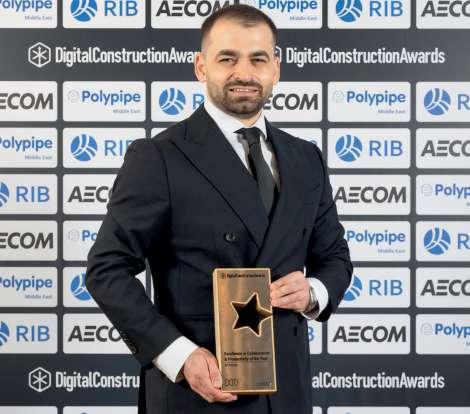
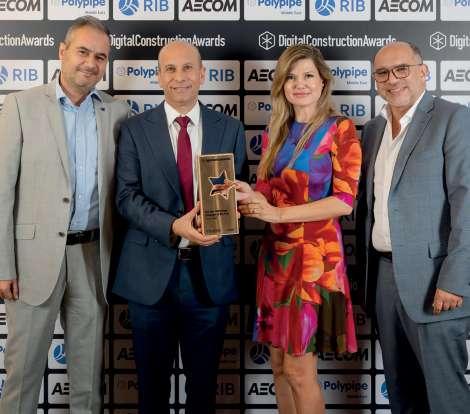
XD House NOMINEES
Graphite Saudi Binladin Group – Contracting
WINNER
XD House
XD House scored the win as it leveraged a cloudbased platform to pioneer a collaborative approach to transforming information management for SMEs.
The firm said it developed a fully automated, scalable information management framework, which enabled the automation of Task Information Delivery Plans, real-time tracking of planned vs. actual data through a CDE, and project-specific capability and capacity assessments to ensure the right teams are in place from the outset.
Anas Ayoub, Founder and CEO at XD House said, “I'd like to thank my team and our clients for empowering us to do an excellent job. Our plan for the short term is to launch some products that are mainly focused on digital construction automation.”
Two nominations were submitted to this sustainability focused category, however a clear winner emerged immediately during the first round of eliminations. The Big Project ME team also found that the second nomination wasn't quite strong enough to make the shortlist, thus Innovo Group was chosen as the winner and presented with a trophy.
Innovo's nomination was comprehensive and highlighted the evident connection between technology and sustainable outcomes. The contractor highlighted that its internally developed iEnergy smart metering system reduced emissions by as much as 400t, and actually saved over US $80,000 on a single project.
In addition, its implementation of 3D AI Reality Capture and digital twin technologies across over $380mn in projects also saw a significant reduction in rework, a reduction in construction time and a carbon footprint reduction of between five to eight percent. The contractor highlighted that it also implemented Oracle Fusion inventory & supply chain modules to bring enhanced visibility in Scope 1, Scope 2 and Scope 3 spends.



NOMINEES
DEWAN Architects + Engineers
KEO International Consultants
XD House
WINNER
KEO International Consultants
A total of seven nominations were reviewed in the first round of eliminations by the BPME editorial team, with only three nominations advancing to the second round of eliminations. Following a thorough review by the panel of judges and voting, KEO scored the win, as its nomination garnered the most first choice votes.
Simon Joss, Program Director at KEO International Consultants said, “This means a great deal, having implemented new AI reality data capture technology working with our Greenport Sustainability data application. Our plan for the future is to continue to expand into logistical AI planning and continue to innovate for the consultant sector.”
NOMINEES
ACCIONA
Innovo Group
Saudi Binladin Group – Contracting
WINNER
ACCIONA
Five nominations were considered in the first round of eliminations, with three advancing to the second, where ACCIONA scored the most first-choice votes.
Guillermo Hijós, O&M Middle East and Oceania at ACCIONA commented, “We are incredibly proud to receive this recognition. This award is a testament to the hard work and innovation of our team in the Middle East. At ACCIONA, we are committed to leveraging digital technologies to enhance efficiency, sustainability, and reliability in water operations. This achievement inspires us to continue pushing the boundaries of what's possible in digital construction and smart water management.”
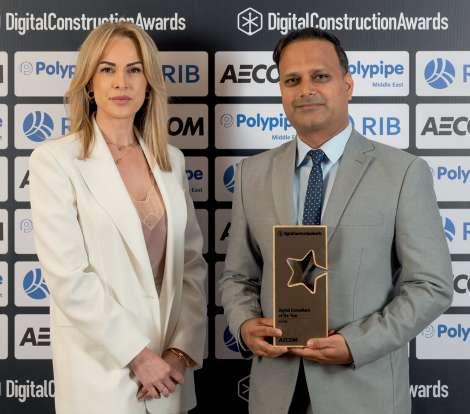
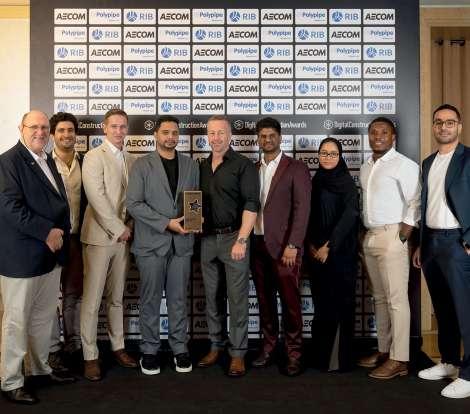

AECOM
CSQ
KEO International Consultants
NOMINEES
Al Khoory Solutions
ALEC
DuPod
Parsons Saudi Binladin Group – Contracting
NOMINEES WINNER AECOM
Eight nominations were submitted, with six advancing to the second round of eliminations, with AECOM scoring the win.
AECOM says it integrated technology across its operations, improving client, construction stakeholder, and community experiences. It recently focused on translating complex environmental data into clear visualisations and actionable insights for infrastructure planning, and developed an inhouse generative AI tool that integrates global marketing and proposal knowledge into a unified LLM, boosting productivity.
“I'm honored to accept this award, it's a pleasure to see the team who are working tirelessly and doing a miraculous job on every project being recognised,” said Honey Sharma, BIM and Digital Engineering Manager at AECOM.
WINNER
ALEC
Six nominations were submitted, with four making it through to the second round, with ALEC being declared the winner.
The contractor has embraced a culture of innovation and last year took a significant step forward in terms of automated project delivery with the launch of its Robotics Strategy. As part of that strategy, it piloted 13 robotics solutions to streamline tasks and improve safety and productivity.
Andy Boutle, Head of Digital Construction at ALEC expressed, “I'm very happy to win this award; for the future, we're working to refine our digital transformation initiatives aligned to a digital strategy, and aim to drive better outcomes for clients, drive efficiency internally, and make life more enjoyable for all of our employees.”


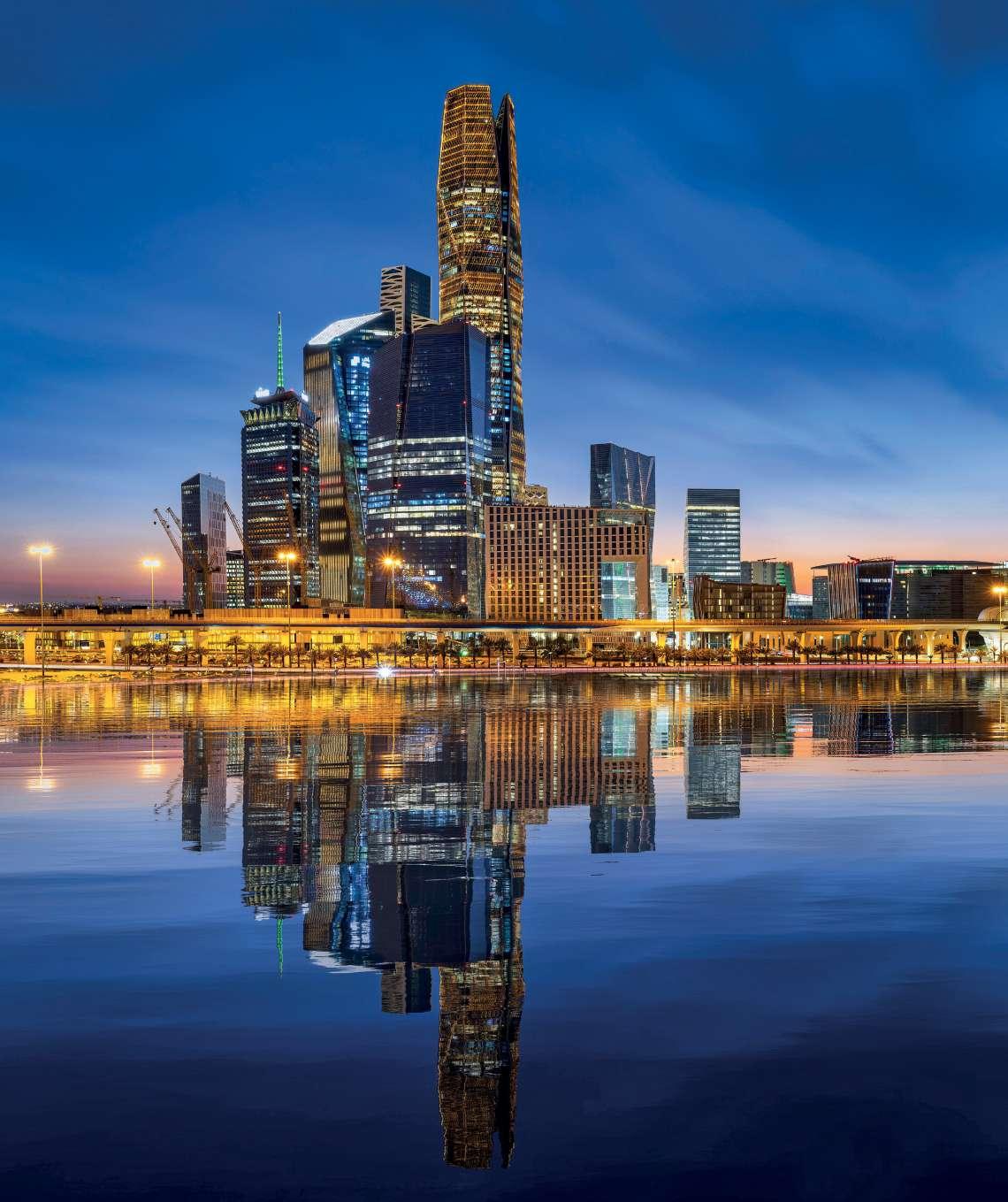
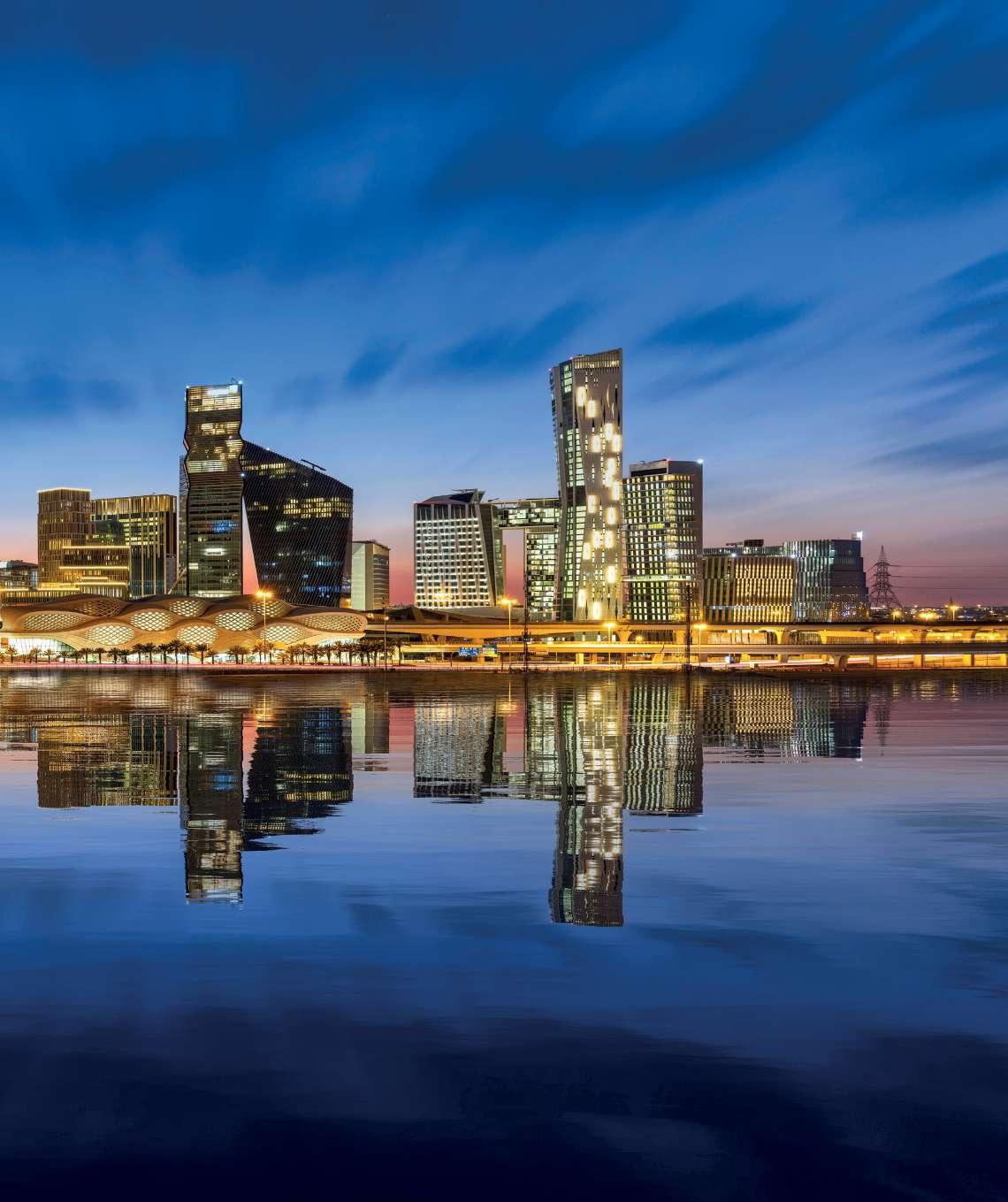
BIG PROJECT ME ’S JASON SAUNDALKAR TALKS TO GRUNDFOS’ ABDULAZIZ DAGHESTANI ABOUT THE PRESSING ISSUE OF QUENCHING THE KINGDOM’S IMMENSE REQUIREMENTS FOR WATER
The countries that comprise the Gulf Cooperation Council (GCC) face significant water challenges, due to their being located in one of the most arid regions on Earth. Saudi Arabia, as the largest country in the GCC, is particularly at risk due growing demand from its population, and significant needs from the agriculture and industrial sectors. These demands have put significant pressure on natural water reserves, combined with the fact that rainfall is, generally speaking, scant.
Experts also note that the Kingdom loses a significant 40% of its water supply, due to inefficiencies in its distribution networks. As climate patterns continue to shift and demand grows, the Kingdom is making significant investments
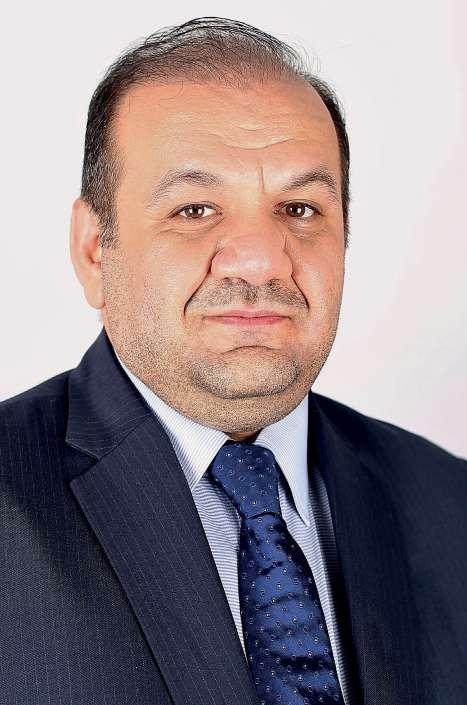
into water infrastructure to secure its future. Here, Jason Saundalkar, Head of Content at Big Project Middle East talks to Abdulaziz Daghestani, Area Sales Director, Water Utilities, MENA and Country Director for Saudi Arabia at Grundfos about solutions that can bridge the gap between demand and supply and ensure long-term resilience.
Given the significant development underway in the Kingdom and the increasing impact of climate change, how do you see water demand evolving over the next five to ten years—and what steps can be taken to meet this demand sustainably?
Saudi Arabia’s water demand is expected to increase steadily over the next decade, driven by rapid urban growth, industrial expansion, and the scale of projects linked to Vision 2030. National forecasts point to a sharp rise in consumption by 2030, as cities grow and infrastructure expands to meet the needs of new economic sectors. At the same time, climate change is contributing to more extreme and unpredictable weather events, further complicating water supply and demand planning.
Meeting this challenge sustainably requires more than just increasing capacity. It involves using existing resources more efficiently, reducing water loss across networks, and improving the overall performance of water systems through better planning and operational visibility. Across KSA, this often means retrofitting older infrastructure with more efficient technologies - such as submersible pumps and automated pressure controls - that can be deployed with minimal disruption. These targeted improvements help strengthen resilience, reduce energy use, and support long-term sustainability goals.
As cities like Riyadh, Jeddah, and NEOM grow, embedding intelligent water infrastructure will be essential - not just for ensuring supply but for building long-term
Smart water technologies can significantly reduce nonrevenue water (NRW) - caused by leaks, theft, or metering inaccuracies - by improving visibility and control across the network.
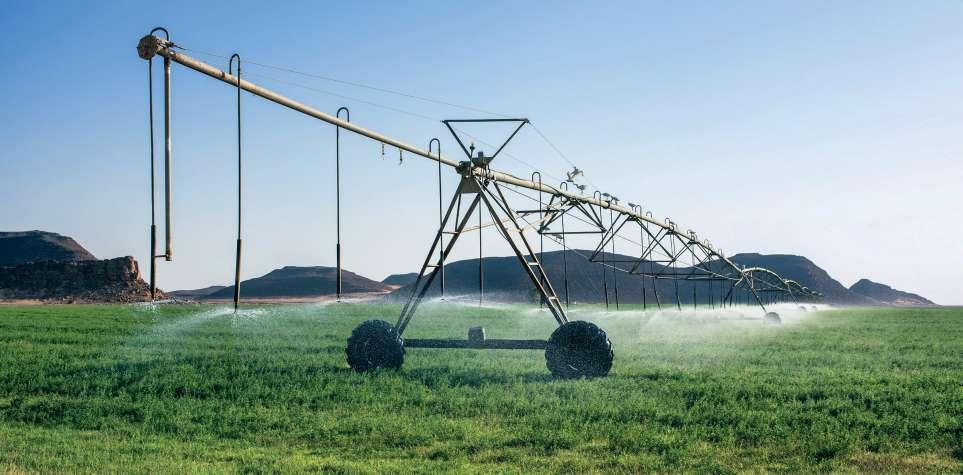
climate resilience across the Kingdom. This will require close collaboration between policymakers, utilities, and technology providers to ensure that solutions are scalable, adaptive, and aligned with national sustainability goals.
As wastewater treatment and recycling play a critical role in meeting future water needs, could you provide a detailed overview of the Kingdom’s current capabilities in this area, and highlight the key investments needed to scale these systems in line with growing demand?
Saudi Arabia currently treats approximately 5.6m cu/m of wastewater daily, and the country plans to increase treated effluent reuse to 70% by 2030. Achieving this target will require sustained investment in tertiary treatment technologies, decentralised facilities in fast-growing zones, and the infrastructure needed to transport treated water for reuse in agriculture, landscaping, and industry. Nationwide, there has been a clear shift toward designing wastewater treatment systems that are efficient, resilient, and adaptable to future demand. These upgrades are helping to lower operational costs, while supporting the Kingdom’s broader sustainability and climate goals through large-scale water reuse. Looking ahead, combining infrastructure expansion with digital monitoring and predictive maintenance will be essential to ensure consistent high performance. This marks
a wider transition - from treating wastewater as a by-product to managing its shift as a valuable, renewable resource.
What role can digitisation and automation play in optimising water distribution networks? How much water can be saved through the use of technology?
Digitisation is playing a growing role in helping utilities manage water more intelligently. With tools like Grundos Utilities Analytics that provide real-time monitoring and leak detection, operators can quickly respond to issues and reduce unnecessary losses. The true value of these tools lies in their ability to shift operations from reactive to proactive. Instead of responding to problems after they occur, utilities can anticipate and prevent them, saving time and resources and reducing disruptions for communities. Smart water technologies can significantly reduce non-revenue water (NRW) - caused by leaks, theft, or metering inaccuracies - by improving visibility and control across the network. These technologies help ensure that more water reaches consumers efficiently.
As cities like Riyadh, Jeddah, and NEOM grow, embedding intelligent water infrastructure will be essential to ensure supply and build long-term climate resilience across the Kingdom Daghestani says.
In the UAE, we’ve seen similar approaches deliver meaningful results. For instance, in Sharjah’s elevated Sheis area, local authorities used digitally controlled booster systems with automated pump monitoring to address topographical distribution challenges. This helped maintain a stable and efficient water supply without the need for frequent manual interventiondemonstrating how automation can support consistent service delivery in complex environments.
These learnings offer valuable insights for Saudi Arabia, where diverse terrain and expanding urban zones present comparable challenges. As the country continues to invest in modern, climate-resilient infrastructure, embracing digitisation is essential for achieving long-term water security and delivering reliable services to its citizens.
Define a decentralised water management system and explain the benefits and the challenges associated with such a system. A decentralised water management system treats and reuses water locally rather than relying solely on centralised plants. These systems are particularly beneficial in industrial zones, remote developments, or residential compounds, offering flexibility and reducing transmission losses.
In the country where over 83% of the population resides in urban areas, yet rural regions continue to expand, decentralisation allows water services to reach growing communities more swiftly and cost-effectively. It supports faster, more cost-effective delivery in areas that may not yet be fully integrated into national networks, while easing pressure on centralised systems.
That said, decentralised systems come with some challenges - such as aligning with national regulations, maintaining water quality, and integrating with broader frameworks. Since they often operate outside traditional utility structures, clear governance and accountability are essential. Operationally, involving multiple stakeholders - like municipalities and private developers - can complicate coordination. Without central oversight, performance may vary due to inconsistent standards or unclear maintenance roles.
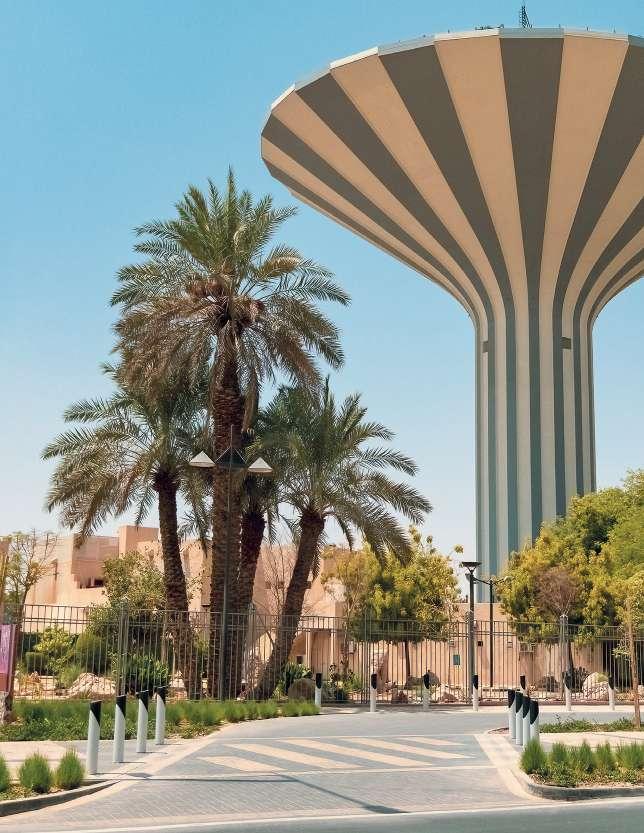
Fortunately, technology is making decentralisation more practical. Modular units can be installed quickly and scaled as needed, while remote monitoring helps track performance, flag issues early, and manage costs. Together, these tools are helping deliver reliable water access to more communities across the Kingdom.
How easy or difficult is it to implement a decentralised water management system, given the country’s size and ageing infrastructure? Implementing decentralised systems in Saudi Arabia presents both opportunities and challenges. In older cities, existing infrastructure may need to be adapted,
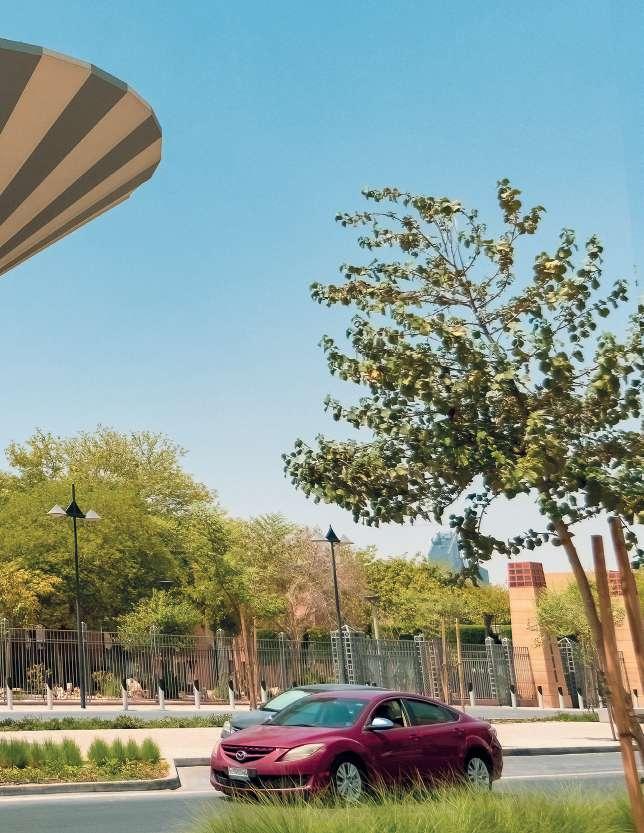
Combining infrastructure expansion with digital monitoring and predictive maintenance will be essential to ensure consistent high performance. This marks a wider transition - from treating wastewater as a by-product to managing its shift as a valuable, renewable resource.
which can add complexity. However, newly developed areas - such as economic zones and new urban districts - provide a more flexible environment to incorporate decentralised solutions from the ground up.
Modular and prefabricated systems are increasingly being explored as a way to scale water treatment and reuse infrastructure quickly without relying on largescale civil works. These approaches can reduce time to deployment and improve accessibility in areas where centralised services are not yet fully established.
As Saudi Arabia continues to diversify its economy and expand into new regions, decentralised infrastructure is likely to play a more prominent role in creating a balanced, resilient water network across both urban and remote settings.
How can PPPs support the Kingdom’s water security goals, and what are the key advantages and potential challenges associated with their role in the development and long-term management of water infrastructure?
PPPs are integral to Saudi Arabia's Vision 2030 water goals, combining public-sector planning with private-sector innovation and technical expertise to expedite the rollout of impactful infrastructure.
However, PPPs come with their own set of challenges. Aligning expectations between stakeholders can be complex - especially when navigating regulatory requirements, long contract timelines, or differing priorities around risk-sharing and returns. These complexities are often compounded by capacity gaps in public institutions, which can slow project execution, while unclear governance structures or performance standards may further hinder long-term accountability.
Despite these challenges, well-structured PPPs can offer significant benefits. We've witnessed the efficacy of this model in projects like the Jubail stormwater upgrade, where Grundfos contributed advanced flood mitigation pumping systems. Such collaborations ensure speed and efficiency, while embedding knowledge transfer and longterm operational excellence into the infrastructure lifecycle.
For PPPs to be truly effective, clear governance structures, risk-sharing frameworks, and outcomebased evaluation mechanisms are essential. When aligned with national objectives, these partnerships offer a scalable pathway to build a future-ready water sector capable of withstanding climate pressures and serving growing communities across the Kingdom.



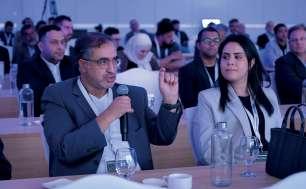
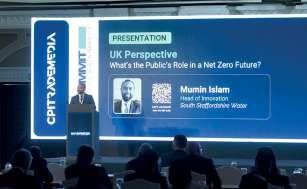




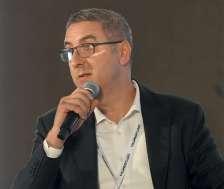




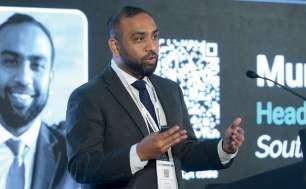
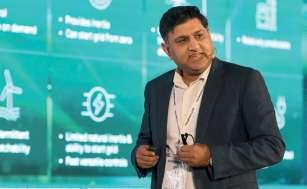


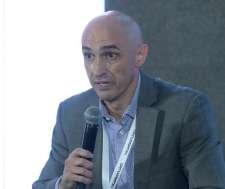
The day-long event featured a broad focus on sustainability in the construction, energy and water sectors through several presentations and panel discussions
Building on the success of the 2024 Energy & Sustainability Summit, the 2025 edition of the event took place on 14 May at the Habtoor Grand Resort JBR, Dubai with an expanded agenda and a new name. The 2025 Energy, Water & Sustainability Summit (EWS Summit) included a deep focus on water management and water strategies and recorded over 160 delegates in attendance.
Explaining the move, Jason Saundalkar, Head of Content at Big Project Middle East (BPME) stated, “The Energy & Sustainability Summit has grown steadily since its introduction in 2022 so for 2025, we decided to expand its focus on an important topic that doesn’t get the attention it deserves – water. In line with this move, we rebranded the event – the EWS Summit – to reflect the expanded agenda which included a focus on a variety of key topics with the water segment.”
The event hosted senior speakers and delegates from across the region and beyond including government organisations, independent developers, consultants, contractors, industry bodies, manufacturers, and suppliers.
The EWS Summit opened with a welcome address from BPME’s Jason Saundalkar, where he discussed recent positive achievements across the energy, water, and construction segments, and highlighted areas that needed urgent attention. He also discussed BPME’s forthcoming events in the second quarter, and called for better collaboration to achieve shortand long-term sustainable outcomes.
Following the welcome note, a keynote address was given by Mudassar Asghar, Technical & Commercial Director – Middle East, N. Africa & Turkey – Grid Automation, Grid Solutions at GE Vernova. His address titled ‘Powering the Grid of the Future: Software-Defined
Automation for Grid Resiliency’ explored how software-defined automation - enhanced by artificial intelligence (AI) and machine learning (ML) – can enable real-time control, faster response to disturbances, and the seamless integration of distributed energy resources.
Asghar’s session was followed by the first panel discussion, titled ‘Sustainable Alternatives’. The session discussed construction materials that have the most embodied carbon and potential alternatives that are feasible, taking into account the region’s distinct weather conditions. It also looked at how much embodied carbon can be reduced by using sustainable alternatives such as green concrete, green steel etc, and examined the influence constrained project budgets have on material choices and selection. The session also showcased the importance of building a supply chain that is governed by
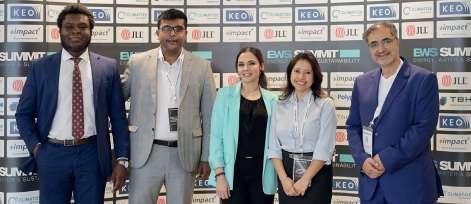

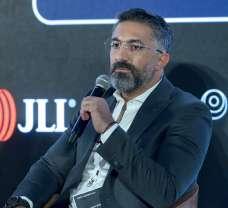
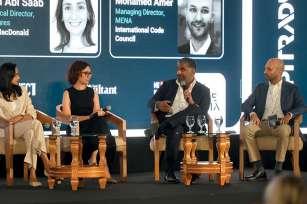
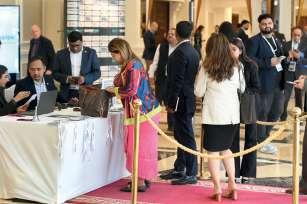
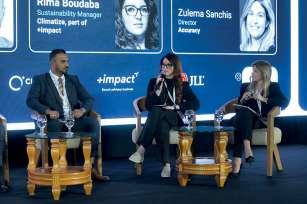

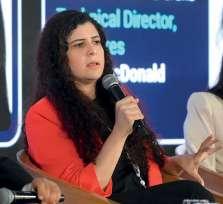
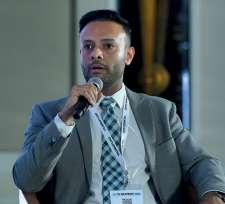

sustainable principles in support of decarbonisation and a Net Zero future.
The session was moderated by Christopher Nicolas, Director at TBH, with speakers including: Dr. Yianni Spanos, Vice President – Sustainability at Expo City Dubai; Engi Jaber, Associate Partner – Sustainability and Head of Climatize, part of +impact; Farouk Jivani, Founder & CEO at Zeroe; Gayathri Udhay, Principal Sustainability & Net Zero Engineer UAE at JLL; Iman Abi
The BPME team decided to shine a light on regional water management and challenges at the 2025 EWS Summit, in addition to the existing focus on sustainability in the construction and energy sectors.
Saab, Technical Director, Structures at Mott MacDonald, and Mohamed Amer, Managing Director, MENA at the International Code Council.
The first presentation was given by Mumin Islam, Head of Innovation at South Staffordshire Water who discussed the UK’s targets and challenges with regards to the public’s role in a Net Zero future, particularly focusing on the role of water efficiency. He also highlighted new innovations in the water space, and presented research and key takeaways on achieving water efficiency in faith and diverse communities delivered in collaboration with a range of partners, including the University of Cambridge, faith groups and behaviour change specialists.
The second panel discussion ‘From Waste to Valuable Resource’ focused on how construction and demolition waste can be diverted away from local landfills and other repositories, and can be turned into useful resources.
The session also looked at: how much solid waste is being produced by the region’s various giga projects, and what are the most wasteful practices that need to be addressed to reduce this output; it identified what construction and demolition (C&D) waste can be recycled effectively and turned into a useful resource, and what the cost implications are to recycling a greater volume of C&D waste. The session also focused on the impact 3D printing and modular construction can have in terms of reducing waste,
and whether or not these methods of project delivery are ready for large-scale use in giga-projects.
The session was chaired by Rola Nasreddine, Executive Director at Springs Global Consultancy, and featured several panellists including: Eoin Sheridan, Director of Environment and Waste at KEO International Consultants; Faik AlHaddadin, Vice President – Projects at DAMAC Properties; Mohammed Hamza Abdul Aziz, Construction & Demolition Waste Recycling Plants Manager at Dulsco Environment, and Rima Boudaba, Sustainability Manager, Climatize, part of +impact and Zulema Sanchis, Director at Accuracy.
The next presentation ‘Every Drop Counts: Sustainability through Water

Stewardship’ was given by Alicia Dauth, Water Assurance Technical Lead at the Water Security Collective. Her session showcased how water stewardship offers a proactive and holistic framework to safeguarding precious water resources, ensures long-term availability, and builds resilience across communities, ecosystems, and economies. She said that by integrating water assurance, the process of verifying that water is managed responsibly and sustainably, the industry can reduce risks, build trust, and support inclusive, long-term growth in a rapidly changing world.
Her session was followed by an hour long break for networking and lunch. The break was followed by the third panel discussion ‘Net Positive
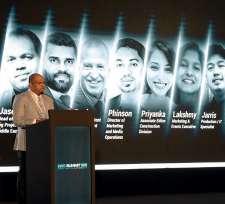

Buildings – The Key to Unlocking Net Zero?’ which discussed designing, delivering and operating Net Positive buildings in the Middle East, taking into account the region’s extreme environmental conditions. The session also shared learnings gleamed from Net Positive structures in other regional and international markets, and looked at whether or not performancebased building regulations are critical to ensuring that Net Positive structures remain true to their mandate, through their entire lifecycle.
The session was moderated by Louise Collins, Partner, Focal Middle East and featured several speakers such as: Ahmed El Dessouki, Regional Sales Director DX MEA – MCMI at Johnson Controls Hitachi Air
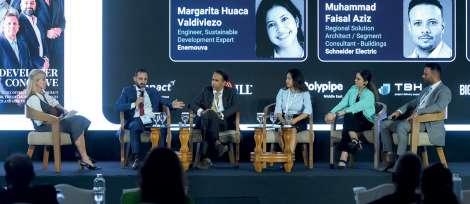
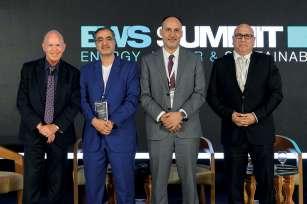
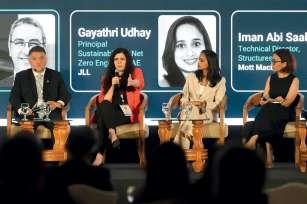
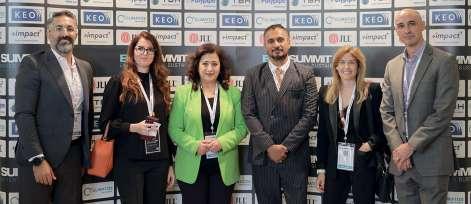

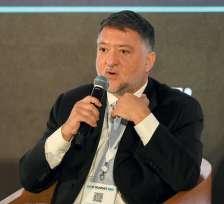
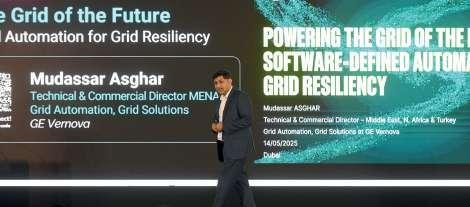


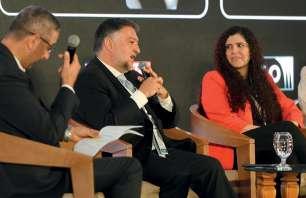
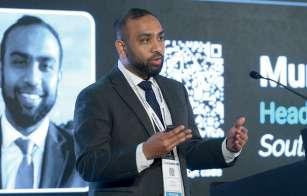
Conditioning MEA; Dr. Paravasthu Ramaswamy Jagannathan, Senior General Manager at Sobha Realty; Margarita Huaca Valdiviezo, Engineer, Sustainable Development Expert at Enernouva; Muhammad Faisal Aziz, Regional Solution Architect / Segment Consultant – Buildings at Schneider Electric, and Shahana Sayed, Principal Sustainability Consultant at Cundall.
The 2025 EWS Summit was sponsored by:
• Strategic Partner: KEO International Consultants
• Associate Partners: Climatize (part of +impact) and +impact
• Supporting Partners: Cundall, Polypipe and TBH
“We’ve already received extremely positive feedback from sponsors, speakers and delegates who participated in our 2025 Energy, Water & Sustainability Summit, which vindicates our decision to grow the event’s agenda with the inclusion of the focus on water. Water is a massive topic in itself, so we are currently discussing internally whether this

event will retain its current broad focus in 2026 or if there’s room in BPME’s packed event schedule for a standalone water event. Long term partners and attendees will of course recall that Big Project ME hosted a standalone event – the Future of Water Summit – in Dubai back in 2023,” Saundalkar commented.
“We’ll be discussing all this and more in the run-up to the new year, and will make announcements on our platforms in due course,” he confirmed.



The inaugural edition took place on 28 May and brought together 16 speakers across a keynote, three presentations and two panel discussions
On 28 May 2025 at the Dusit Thani hotel on Sheikh Zayed Road, Dubai, Big Project Middle East hosted its inaugural Future of Engineering Summit (FOE Summit). The event’s key themes were centred on floating cities, façade engineering & MEP engineering, climate adaptive designs and technology.
“Key hubs across the Middle East are developing at a rapid pace and are announcing projects the push the boundaries of construction and engineering. Bringing these developments to life in line with clientand government-requirements calls for innovative thinking and cutting edge engineering practices, and that’s exactly why we decided to launch an event dedicated solely to engineering,” stated Jason Saundalkar, Head of Content at Big Project Middle East
The event brought together thought leaders from local and international construction and engineering firms for a day of knowledge sharing and debate, with a keynote address, two presentations and two panel discussions.
The FOE Summit opened with a welcome address from BPME’s Jason
Saundalkar who discussed a number of regional and international examples of cutting edge engineering in relation to super tall structures, coastal developments and climate resilience. He also noted that whereas the region may have once borrowed know-how from international markets to deliver local projects, the complexity and scale of regional projects in the last 15 years has seen cutting edge expertise emerge from within the region itself.
Rima Boudaba, Sustainability Manager, Climatize, part of +impact then delivered her keynote address ‘Shaping the Future: Facades in Sustainable Green Buildings’, which showcased why green buildings are essential in addressing climate challenges, and explored how the future goal should be to transform façade design, performance, and efficiency through circularity, and intelligent, data-driven technologies and decision making.
The first panel discussion ‘Floating Cities’ then took place and was moderated by Engi Jaber, Associate Partner – Sustainability and Head of Climatize, part of +impact. Speakers on the session included: Cameron
Alexander Livingstone, Committee Chair, Policy & Governance, The Floating Institute; Dr. Harpreet Seth, Head of Architecture, Heriot Watt University Dubai; Khaled AlShamaa, Founder, XYZ Designers; Maubeen Ali Gulzar, Highways Lead & Project Manager, KEO International Consultants, and Roland Luke Shine, Operations Manager, GHD Global Pty Ltd Abu Dhabi. The session focused on the benefits of floating cities and whether they are a more sustainable alternative to manmade islands/land reclamation; governance on floating cities and what authorities have to put in place to ensure these developments are built and managed properly to ensure longevity and safety; what climate-change driven extreme weather events are floating cities susceptible to, and how those issues can be mitigated, and also identified what infrastructure floating cities should feature beyond energy-, water- and wastemanagement systems and mobility.
Fady Kobersy, Head of Sales & Customer Success – MENA, Levant at RIB Software then gave a presentation titled ‘Engineering tomorrow:

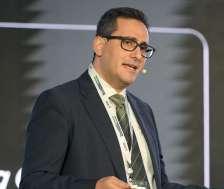






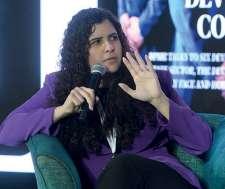




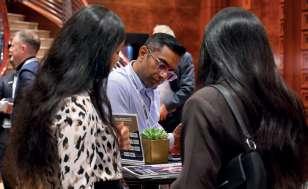
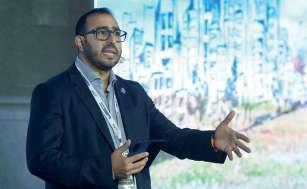

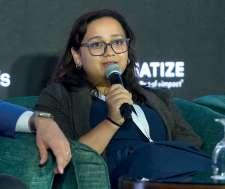
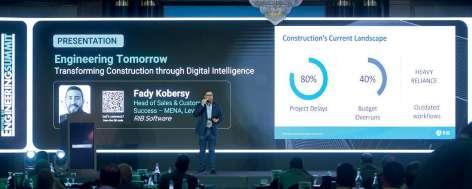

Transforming Construction through Digital Intelligence’. The session showcased how leveraging data-driven innovation and intelligent digital solutions can impact the Future of Engineering, redefine construction practices, enhance project delivery, and support sustainable growth in the MENA region.
The next session ‘Facades of the Future’ put the spotlight on façade and MEP engineers and the uphill battle they have to build increasingly complex structures, while simultaneously satisfying a multitude
of other requirements. It discussed the impact cutting edge façade design can have on enhancing a structure’s energy efficiency and resident quality of life; the influence of MEP systems on building performance and their interconnected relationship with building facades; the balancing act between form, function, sustainability and cost, and climate adaptation, and trends such as the use of advanced materials such as bio-reactive facades, self-cleaning concrete, as well as how responsive façade systems can ensure that a structure is as resilient as possible. The session was moderated by Ghina Yamak, Principal Façade Consultant at Zutari Engineering International, with speakers including: Imran Shaikh, Director of MEP & Specialisms at
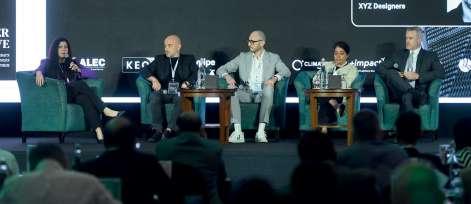
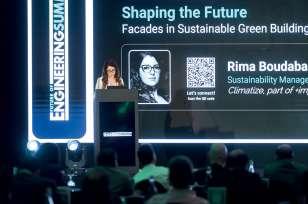

Ramboll Middle East; Izzeddin Hasan, Chief MEP Engineer at MERED; Jason Pardesi, Business Group Manager –Structures & Facades at GHD Global; Stuart Rennie, Senior Project Architect at Adjaye Associates, and Surabhi Saran, Senior Building Physicist at AESG.
The second presentation ‘Safeguarding Health in the Built Environment:
Engineering Public Health into Building Design’ focused on public health in buildings; how prevention is more cost-effective than cure; the real cost of public health failures, and showcased smart engineering solutions that protect people and reputations. The session was presented by Adam Smith, Managing Director at Polypipe Middle East.
The final presentation was given by Ahmed Balawi, Engineering Manager at



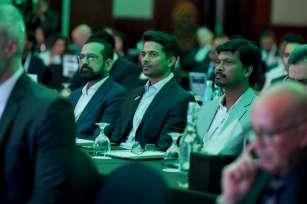

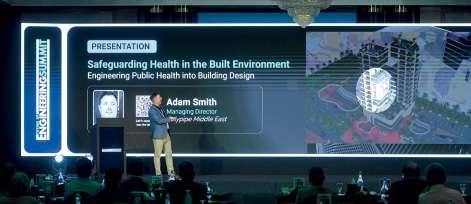
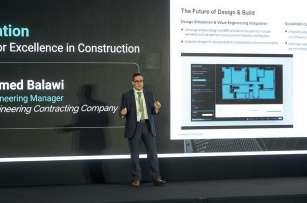
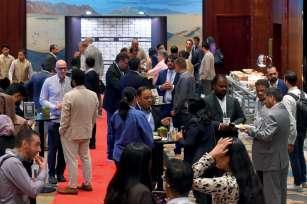

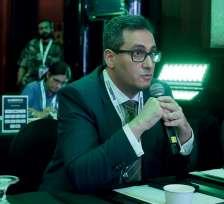


the Engineering Contracting Company. He spoke about how the sector is being reshaped by technological advancements that enhance how projects are designed, executed, and delivered. He stated that in the UAE, innovations such as object-based data analytics, digital twins, and AIpowered tools are driving the future of smart, sustainable development.
The summit was supported by:
• Strategic Partners: ALEC, KEO International Consultants, Polypipe Middle East
• Associate Partners: AtkinsRealis, Climatize (part of +impact), +impact
• Supporting Partner: ECC, RIB, TBH and RICS “Delivering the region’s various building and infrastructure projects
is pushing local and international companies to innovate, and address complex requirements with out of the box thinking and cutting edge engineering. In the years to come, I’m confident that the majority of case studies highlighting engineering master-classes will originate from GCC countries and others dotted around the Middle East,” concluded Saundalkar.


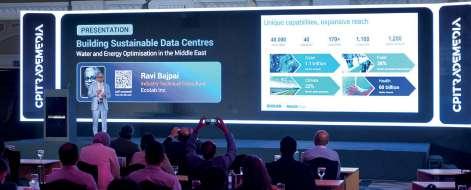
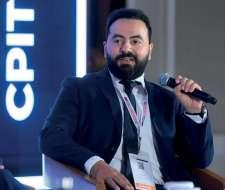


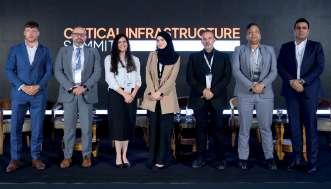







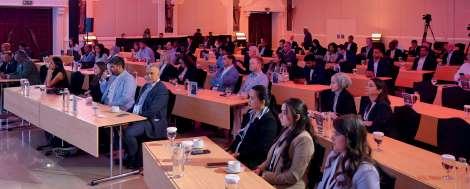






The second edition of the summit comprised a keynote address, three presentations and three panel discussions covering topics from infrastructure financing to green spaces and coastal city readiness
The region’s infrastructure was put into sharp focus at the second edition of Big Project Middle East’s (BPME) Critical Infrastructure Summit (CI Summit) on 18 June at the Habtoor Grand Resort, JBR, Dubai. The event’s key themes were centred around public transportation infrastructure, green spaces, climate readiness, Public Private Partnerships (PPPs), and soft infrastructure.
“Last year’s inaugural edition of the CI Summit focused on data centres, airports, seaports, aerial mobility, so I was keen to go in a different direction with this year’s summit,” explained Jason Saundalkar, Head of Content at Big Project Middle East. “Following research and several discussions with a number of industry contacts, the BPME team settled on this year’s topics, which tie into requirements and challenges faced by several key cities within the region.”
The day-long event featured speakers and delegates from
regional and international entities including consultants, contractors, infrastructure developers & operators, law firms and suppliers. The event comprised a keynote address, three panel discussions and three presentations.
Dina Dweik, Associate Director at TBH opened the event with a keynote address titled ‘Building Resilient Infrastructure: Mitigating Project Delays through Effective Communication Strategies’. The session leveraged TBH’s experience of delivering large-scale infrastructure projects and shared insights into how effective stakeholder alignment and communication can drive better project outcomes and avoid delays, budget overruns and other challenges.
The first panel discussion ‘The Need for Green’ followed Dweik’s session, which highlighted the essential need for green spaces in city to promote active lifestyles and reduce resident stress, combat
pollution and improve air quality, and reduce the urban heat island effect.
The session highlighted the current state of green spaces in fast growing regional cities such as Dubai and Riyadh, and what decision-makers should plan for in terms of green spaces in relation to a city’s population levels and other infrastructure; the potential impact parks and other greenspaces can have in terms of capturing, securing and storing carbon dioxide and promoting better community cohesion and public health; the need to increase green infrastructure such as rain gardens, infiltration basins, stormwater greenstreets, green & blue roofs, permeable paving etc to turn stormwater into a usable resource, and even examined whether regional cities can be made more walkable by focusing on planting trees and creating an urban tree canopy. The session was moderated by Alicia Dauth, Water Assurance
Technical Lead at the Water Security Collective. She was joined by: Aamena Desai, Associate Urban Designer at Buro Happold; Jaime González Serrano, Business Development Manager at ACCIONA; Leila Sobek, Founder at BMA Studio, and Rola Nasreddine, Executive Director, Springs Global Consultancy.
This session was followed by the summit's first presentation ‘Building

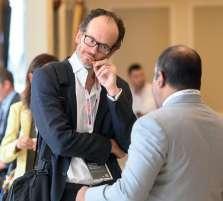
Sustainable Data Centres: Water and Energy Optimisation in the Middle East’ which was given by Ravi Bajpai, Industry Technical Consultant at Ecolab Inc. He discussed the topic of optimising water and energy consumption in data centre construction and operations across the Middle East. He touched on a variety of areas including sustainable cooling technologies, water
treatment solutions, and operational strategies that reduce environmental impact, while maintaining peak performance in the region’s challenging climate conditions.
The second panel discussion ‘Keeping Cities & Residents Mobile’ then took place. The session was moderated by Samantha Rowles, Managing Director – Mobility & Emergency Services at SERCO,
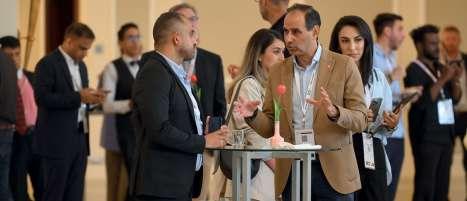

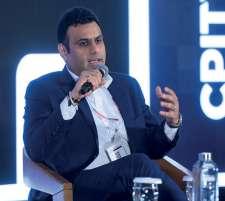
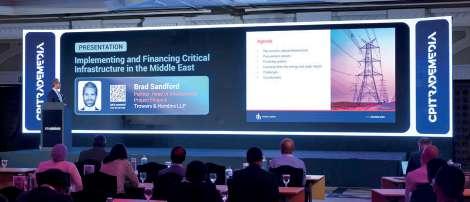
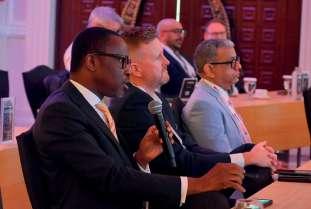
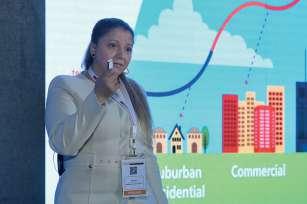

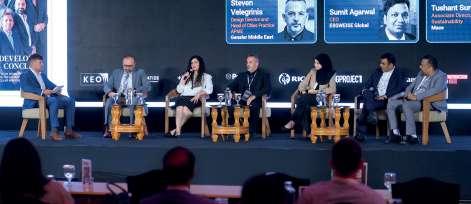

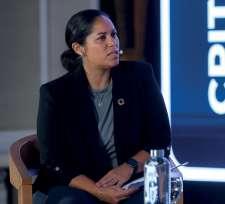
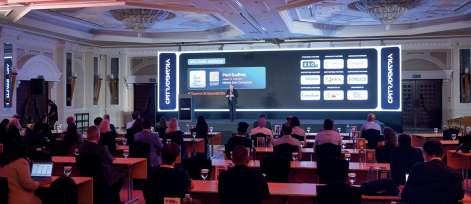
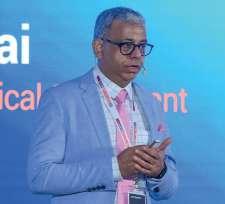
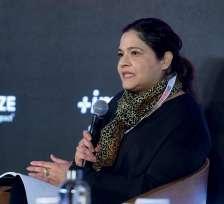
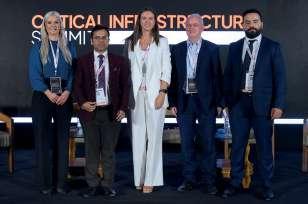
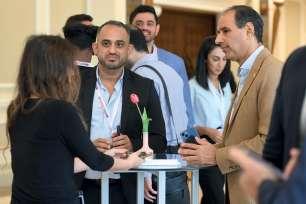
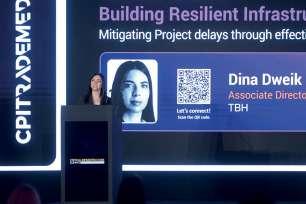
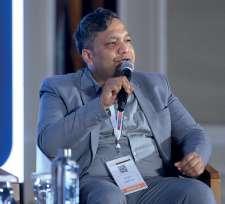


with regional and international speakers including: Laura Morgan, Cost Estimation Lead at Focal Cost Management Services; Roger Cruickshank, Senior Director at AtkinsRealis; Saurav Choudhury, Counsellor – Green Built Environment, Confederation of Indian Industry (CII) at the Indian Green Building Council, and Tareq Latayfeh, Regional
The 2025 edition of the summit focused on a variety of topics, including the threat posted to coastal cities by climate-change driven events such as sea-level rise.
Director – Infrastructure – KSA at KEO International Consultants.
The session touched on several key areas including the main causes of congestion in growing cities such as Dubai and Riyadh; what existing public transportation systems in key cities are underutilised and how can their attractiveness as a solution and usage be improved; the types of public transportation that regional cities should look to develop in the coming years; the role autonomous road-based public transportation solutions can play in growing cities, and how masterplans and infrastructure should be planned and developed to account for sudden spikes in population growth.
The panel discussion also focused the roll out of toll systems, the recent calls for work from home by regional governments and municipalities, and highlighted other steps authorites can take to reduce the burden on road-based infrastructure.
The session was followed by the second presentation ‘Implementing and Financing Critical Infrastructure in the Middle East’ which was delivered by Brad Sandford, Partner, Head of International Project Finance at Trowers & Hamlins LLP. Sandford explored the need for critical infrastructure in the Middle East with a high-level focus on Saudi Arabia, UAE, Qatar and Oman. His session also highlighted the different
procurement methods available to governments and operators, and shared key learnings gleamed from the energy and water segments.
The presentation was followed by an hour long lunch break, which then led into the third panel discussion ‘Climate Change Readiness –Preparing Cities & Infrastructure for the Worst’. The session was moderated by Lewis Matheson, Associate Director at Rider Levett Bucknall, and featured speakers including: Amir H. Greiss, Founder & CEO at SharpMinds Consulting Engineers; Ayah Rahmoun, Graduate Engineer at ARUP Gulf Limited; Engi Jaber, Associate Partner –Sustainability and Head of Climatize, part of +impact; Steven Velegrinis, Design Director and Head of Cities Practice APME at Gensler Middle East; Sumit Agarwal, CEO at ESGWEISE Global, and Tushant Suri, Associate Director – Sustainability at Mace.
The session was centred on what coastal cities as well as those further inland should invest into in terms of infrastructure and plans to prepare for worst-case climate scenarios to ensure that day-to-day life and business can continue in the face of climate
challenges. The session touched on a number of points starting with an overview of what has been done so far to prepare for climate-change related extreme weather events; what climate-related extreme weather cities in the Middle East must prepare for in the coming years; how cities can cope with the increasing occurrences of extreme weather events, and key infrastructure that decision makers should turn their attention to in terms of mitigating risk from extreme weather events and other climate-change related challenges.
The panel also discussed the impact sea level rise could have on coastal cities in the Middle East and what steps can be taken to protect cities, infrastructure and inhabitants, and highlighted the growing challenges that sandstorms pose to buildings and infrastructure, and how that challenge – which has caused loses in excess of $13bn in the region in recent times – can be addressed.
The final session of the day was a presentation made by Lina Abolail, Sales Director – CGUN at Polypipe Middle East Water Technology. Her session ‘Innovative Approaches to Stormwater Management in the
UAE: Transforming Water into a Valuable Resource’ highlighted the importance of water systems to public safety and city stability, and showcased how these assets can be protected from physical and cyber threats thus ensuring resilience in treatment, distribution, and wastewater management.
The Critical Infrastructure Summit was sponsored by:
• Strategic Partner: KEO International Consultants
• Associate Partners: Climatize (part of +impact), +impact
• Supporting Partners: Polypipe Middle East, RICS
“At the moment almost every major city within the region is investing heavily into infrastructure development and climate resilience, and despite several key infrastructure projects coming online in the past five years, the future pipeline for infrastructure across the region remains vast. Although residential and tourism related projects capture global headlines and eyeballs, the region is just as impressive when it comes to mobility infrastructure, city-wide greening projects, data centres, and much more,” concluded Saundalkar.



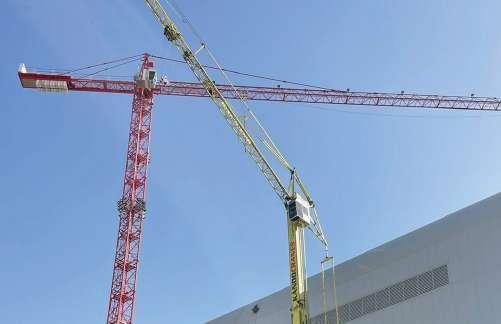

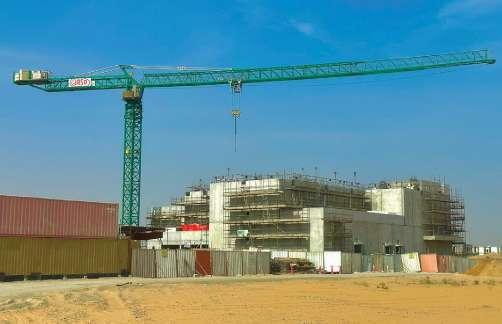

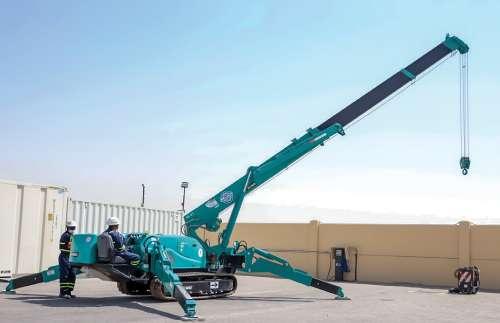



Kanoo Cranes offers engineered solutions for any lifting requirements with knowledgeable experts engaged in the field of lifting. With a combined experience of more than 50 years with Mobile cranes, Crawler cranes, Tower cranes and passenger hoists we offer top quality products from:
Our Focus is to provide engineered crane solutions to the Construction, Oil and Gas and Industrial markets.
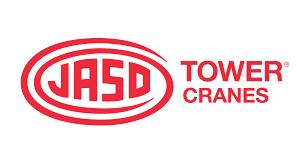



As high-end clients prioritise health, comfort and happiness, only projects that marry luxury with a holistic approach to well-being stand to win writes WalkThru Contracting’s Bachar Gebran


The wellness economy, a multi-trillion-dollar business, has grown with relentless momentum post pandemic. In a bid to live longer and have fitter lives, urban consumers, particularly the affluent, are spending on everything from superfoods to IV vitamin drips and newage trends that promise to revolutionise their health and wellbeing. This demand for wellness has permeated the region’s real estate market too, most visibly in luxury residential projects and to some extant in office, hospitality and commercial developments.
Wealthy home buyers and investors worldwide are no longer interested in run-ofthe-mill luxury properties. They are actively seeking out developments that embrace ‘Wellness Living’ - a catch phrase used to refer to properties kitted out with greenscaping, spa, gym, meditation spaces and other wellness amenities. And the good news is, they are willing to pay a premium for it. This mounting demand, likely to endure for the coming decade, is pushing developers to ramp up their wellness offerings with each new project announcement.
Dubai, the world’s capital for luxury branded residences, rivalling Miami, New York and London, is also seeing its share of wellness-oriented projects such as Aldar’s latest Verdes by Haven, while Abu Dhabi prudently follows suit with uber niche developments like SHA Wellness Residence on AlJurf Island. The next five years will witness the rise of many more in the UAE.
Riding the wave of wellness living and delivering luxury projects that promote the physical and mental health of its users, requires the integration of ergonomic, biophilic design with smart technology and the element of ultimate luxury - comfort.
Although comfort can be subjective and personal, there are certain factors that contribute to creating comfortable spaces, primarily the quality of air, light, sound, space and materials. What often distinguishes
Only projects that marry luxury with a holistic approach to well-being stand to win in our increasingly competitive and constantly evolving real estate market.

a wellness-oriented luxury property from others is its focus on the often-overlooked aspects of ventilation, air quality, water quality, noise control, moisture control, and thermal optimisation. These factors collectively contribute to the Indoor Environmental Wellness Index (IEW-Index). Although such indices are not in active practice in the Middle East construction sector currently, one can expect this to become important in the coming years, as wellness living becomes the norm in the luxury residential sector. Air treatment solutions and noise level optimisation through proper insulation of everything from facades to plumbing systems are strategies that will become common place as luxury properties prioritise wellness.
Biophilic design is the holy grail of wellness living. Open floor planning, natural light, indoor green spaces, use of natural materials, nature shapes and earthy tones are biophilic design principles currently in vogue in luxury properties.
Skylights, expansive glass walls, frameless windows and other such sleek glass features that help to create integrated living spaces by blurring the borders between interiors and exterior landscaping in luxury living, often add to the thermal load of the property. In a move to mitigate this, high-glazed glass with low U-values - glass that maximises natural light whilst minimising heat transfer - is becoming hugely popular in luxury construction. Likewise, water features like Koi ponds, that not only create a relaxing visual effect but also add pleasing white noise, are starting to trend in luxury residences.
Smart technology is also no longer a fad, it has become the standard in luxury wellness properties. It is an indispensable musthave that contributes to the wellbeing and comfort of residents, particularly home
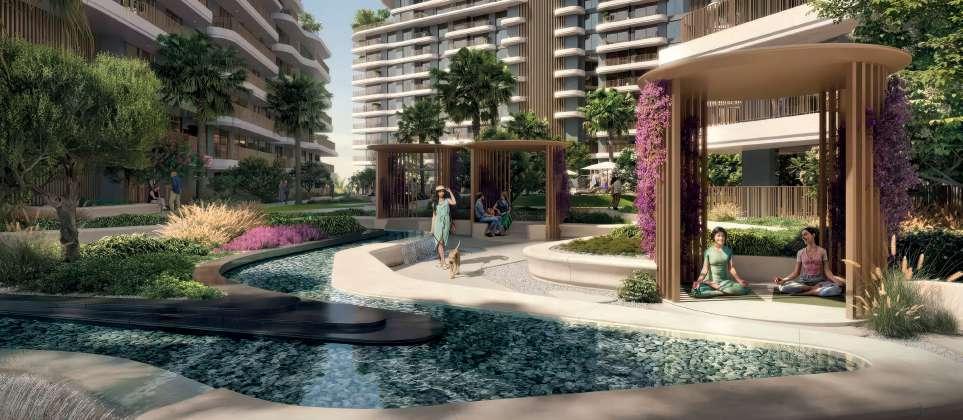
automation systems that help monitor and control everything from to air conditioning (HVAC) to water purification systems.
There is a downside to home automation, it promotes a passive lifestyle where the occupant has access to everything at the touch of a button. This high focus on comfort minimises movement and goes against the grain of fostering physical wellness. This can be offset through design that encourages an active lifestyle.
Other than integrating wellness-focused amenities such as a gym or a yoga room, it is important to create inspiring spaces that naturally encourage movement. For instance, a well-lit stairway with a view to the garden is more likely to encourage the occupant to use the stairs. In luxury apartment complexes and gated community living, a more active lifestyle can be promoted by prioritising green spaces and amenities like walking trails and outdoor fitness areas.
Eco-friendly Building and Sustainability
Green building practices, such as ecofriendly construction, integration of renewable energy sources such as solar
Water features like Koi ponds, that not only create a relaxing visual effect but also add pleasing white noise, are starting to trend in luxury residences says Gebran.
panels, and energy-efficient features, have become commonplace in luxury real estate developments. While commercial projects and green financed developments formally seek LEED certification, private properties are less concerned with it.
The ESTIDAMA Pearl Building Rating system, a sustainability metric developed by the Abu Dhabi government, currently requires all new projects to achieve a minimum Pearl Rating 1. However, developments with a focus on wellness living are pushing the envelope to achieve Pearl 3 and even 4 ratings, through the implementation of water conservation measures such as grey water recycling systems, use of green building materials and construction techniques, integration of smart technology, and bioclimatic design that promotes energy efficiency.
Wellness living is undoubtedly reshaping the region’s luxury construction sector. As high-end clients prioritise their health, comfort and happiness above all else, only projects that marry luxury with a holistic approach to well-being stand to win in our increasingly competitive and constantly evolving real estate market.
Bachar Gebran is CEO of WalkThru Contracting.




Spider Crane (URW095, URW295 & URW 376)





EK
Ultra-compact and ideal for con ned spaces, with an extended reach for mid-range lifting tasks. (Libro 500, 800, 2500 & 3000)
( 3.0BL, 6.0BL & 3.0FX with dolly System )
Work up to 100m below equipment setup. Multi
Easily assembled/ dismantled and portable
Counterbalance beam designed for installations underneath overhangs or replacing loading bays for material placing
Self-leveling tracked carriers for heavy material transport on uneven terrain or within buildings
A rolling conveyor system for safe and e cient material handling through windows and openings.
A compact and versatile material lift designed for precise and e cient vertical lifting.
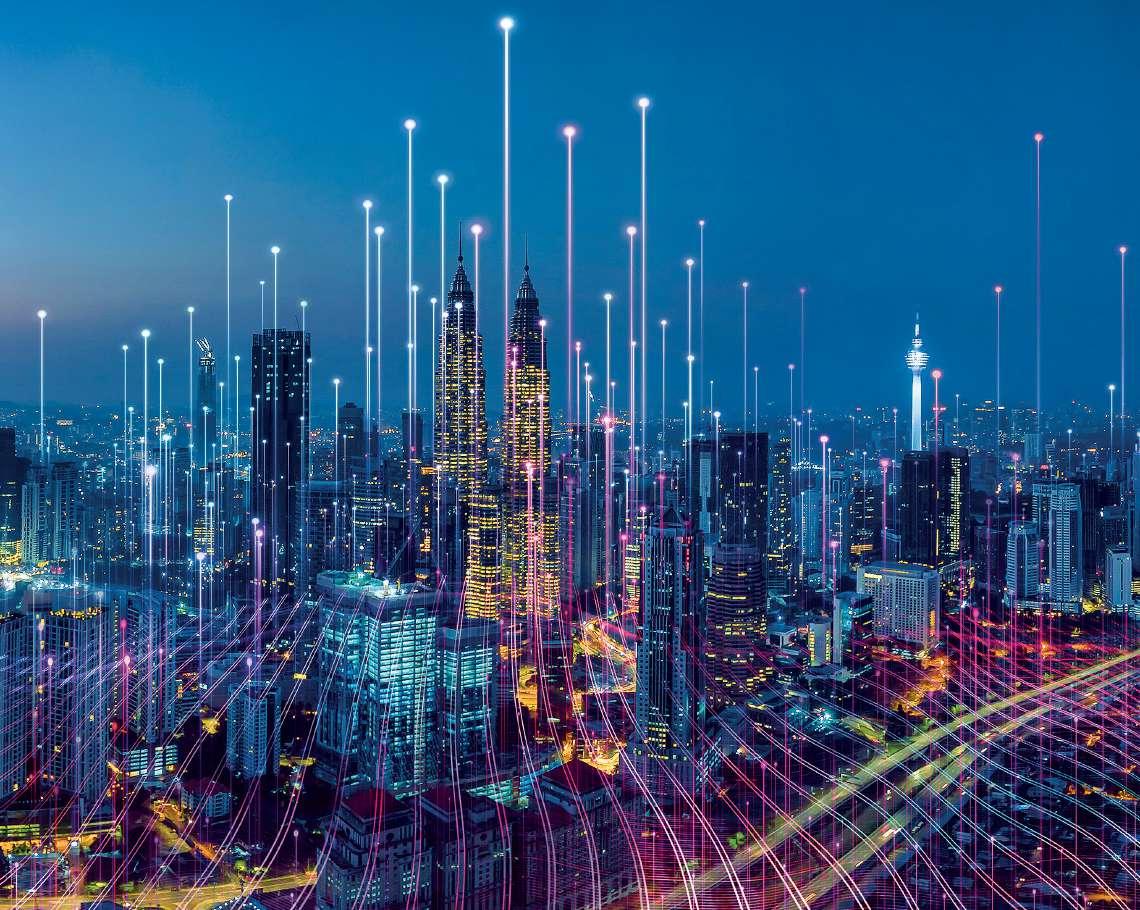
Why must our new smart cities put citizens first?
As we build the cities of tomorrow it’s important to remember that a smart city is one that works for everyone, every day says Bentley Systems’ Olly Thomas

‘What is a smart city?’ I once asked a colleague. Her reply? That a smart city, in many parts of the world, is one where you can turn on a tap 24/7 and expect clean water to come out. Definitions differ but one thing is certain: that any ‘smart’ city should be focused on making life for its citizens better.
Today, according to the World Bank, over four billion people around the world – more than half the global population – live in cities. That’s up from 15% six decades ago. This makes city dwelling a focal point for policymakers, economists and planners, as well as sustainability professionals.
Nowhere is the idea of the ‘smart city’ taking hold more than the Middle East, which is globally known for its ambitious development projects and futuristic vision.
Mega projects such as the flagship NEOM, JCDC, Qiddiya City and Diriyah Gate, some planned, some underway, are promising to transform what constitutes city living and what our cities look like.
The need for re-thinking our urban spaces is clear. In Dubai, for example, in the first quarter of 2025, the population crossed 3.9m people.
The challenges around design and delivery for programs of this size and scale are significant. But what about the challenge of making sure that this infrastructure remains fit for purpose and delivers as intended 40 or even 50+ years from now. How do we maintain it effectively? How do we achieve maximum ‘whole life’ value from it? How do we ensure the ‘livability’ of the infrastructure for decades to come?
One way is to look to the latest technology that can support us – artificial intelligence (AI), digital twins and so on – and how we can put it to best use.
We need to think about how that technology will serve the citizens and communities living in those spaces, and
Let us not lose sight of the simple but powerful idea that a smart city, at its core, is one that works for everyone, every day.
how it will contribute to ‘whole life’ performance. And what about its role in supporting the realisation of Net Zero goals?
These topics were explored at a major conference that I recently attended in Dubai. It brought together Building Information Modelling (BIM) and digital construction specialists with data management specialists, GIS specialists and city planners, as well as architects and engineers. Over two days we shared experiences and evidence regarding digital approaches to work and how they have increased efficiency and provided the organisations adopting them with a competitive edge.
We explored how digital twins can support developers across the lifecycle to create places, which enhance quality of living, help keep people safe, and help core services such as traffic management and people flow to be managed effectively.

We also studied examples of those programs in the Middle East which are already benefiting from digital twin technology such as Masdar City in Abu Dhabi, a sustainable urban development, which is using digital twins to optimise energy usage and resource management.
I also talked about the importance of a common/connected data environment (CDE) as the foundation for any infrastructure program, and why data quality and governance are key to unlocking the potential of digital twins, AI and other technologies.
To build, manage and operate smart cities, we must consider core areas such as skills. The teams involved with these mega programs must include not just traditional construction and engineer professionals, but data and digital specialists with the experience and knowledge to ensure long-lasting, high performing and sustainable infrastructure.
Back in 2020, the UK’s Institution of Civil Engineers published an article looking
at the skills future engineers might need. Then President's Future Leader Holly Smith explained that digital transformation is not just about technology, “it's also about how we implement change using people.”
She added: “For example, I feel that gaining coding skills would help me to automate my work and work more efficiently. Companies that truly want to be leaders in digital need to support upskilling in the digital space.”
In its ‘Digitalisation in Construction Report’ 2024, the Royal Institution of Chartered Surveyors (RICS) also discussed how skills requirements are changing.
The teams involved with mega programs must include not just traditional construction and engineer professionals, but data and digital specialists with the necessary experience and knowledge to ensure long-lasting, high performing and sustainable infrastructure says Thomas.
“We must also remember that our clients’ expectations will change as technology delivers benefits in other areas of their businesses and their personal lives. They will work with those in construction who can meet their demands better or faster: in the future, this will mean those best able to realise the advantages of digitalisation.”
It is also important to prioritise the way in which we contract and incentivise the teams involved in these megaprojects. Instead of rewarding quantitative outcomes (e.g., square meters built), we must actually start rewarding key qualitative outcomes like infrastructure resilience, improved safety, carbon reduction and overall citizen satisfaction.

The Middle East is rapidly emerging as a leading innovation hub for urban development. Supported by its visionary leadership, significant capital inflow, and a strong appetite for innovation, the region is actively redefining global benchmarks.
However, to sustain this growth momentum, it is pertinent to look beyond current trends for megaprojects and headline-grabbing technologies. This will help ensure that smart cities are designed prioritising citizen needs, long-term adaptability and sustainable performance.
Whether engineers or planners, we need to remember, as the ICE puts it so eloquently , “that cities are much more than nuts, bolts and hightech innovation. Urban infrastructure should serve the needs of citizens and communities – helping them to prosper.”
As we build the cities of tomorrow today, let us not lose sight of the simple but powerful idea that a smart city, at its core, is one that works for everyone, every day.
Olly Thomas is Director of Advisory Services, EMEA at Bentley Systems.


As governments, investors, and communities continue to prioritise sustainability, digital construction platforms will play a central role in shaping the built environment says PlanRadar’s Ibrahim Imam

As the Gulf region undergoes a construction boom driven by giga-projects, urban expansion, and national sustainability targets, the role of smart construction solutions is growing in importance. With mega-developments like NEOM, Qiddiya, and Dubai 2040 Urban Master Plan pushing the boundaries of scale and ambition, the construction industry is being called upon to build not just faster and smarter—but greener.
In this landscape, digital platforms and PropTech innovations are enabling developers and contractors to reduce their environmental footprint, optimise efficiency, and align operations with sustainability goals. As ESG frameworks become benchmarks for project viability and investor interest, smart construction is emerging as a performance tool and a competitive advantage.
From project planning and documentation to post-handover maintenance, smart construction technologies now support more sustainable practices throughout the entire building lifecycle. These tools are helping companies transition from reactive, paperbased workflows to integrated systems that enable data-driven decisions, improved accountability, and measurable impact.
1. Digital Documentation and Reporting: Traditional reporting methods rely heavily on paper, spreadsheets, and disconnected tools—resulting in delays, inefficiencies, and carbon-heavy operations. Cloud-based platforms now allow teams to manage documentation, site photos, approvals, and inspection records in real time. This transition significantly reduces paper consumption and enables faster, data-backed decision-making.
For example, on large-scale projects in the UAE and Saudi Arabia, real-time documentation has helped teams reduce meeting cycles, eliminate redundant updates, and provide instant access to approved designs and inspection reports. This transparency
reduces administrative overhead, while also contributing to environmental performance by limiting the need for reprints, physical archiving, and courier-based communication.
Digital audit trails also improve regulatory oversight, allowing developers to demonstrate compliance with building codes and sustainability guidelines without delays. In government-regulated developments, this can speed up approval cycles and reduce legal or financial penalties.
2. Automated Defect Management & Quality Control: Rework due to miscommunication or late issue detection accounts for up to 15% of total project costs, according to industry studies. Smart construction platforms allow site teams to log defects directly on drawings, assign them with supporting visuals, and monitor resolution in real time. This streamlined approach reduces material waste, improves quality assurance, and helps projects stay on schedule.
Several developers across the GCC have reported up to 30–50% reductions in rework after implementing automated workflows and centralized task management. These systems also allow managers to analyse the root causes of recurring issues - whether they stem from specific subcontractors, material quality, or misinterpreted designs - leading to long-term process improvements.
Moreover, digital platforms can be used to standardise and automate quality checklists. This ensures uniform inspection procedures across different sites and contractors, reducing variability and promoting a culture of continuous improvement. The ability to attach photos, notes, and real-time status updates also enhances communication between on-site teams and remote decision-makers.
3. Predictive Maintenance & Lifecycle Optimisation: Sustainability continues long after a project is delivered. In fact, according to the International Energy Agency, building operations account for nearly 28% of global CO2 emissions. This makes post-handover
maintenance and operational efficiency just as important as green construction methods.
Digital tools now support facilities management teams in scheduling preventive maintenance, tracking asset performance, and extending building lifespan. By reducing reactive maintenance and unplanned downtime, these platforms also contribute to energy efficiency and lower operating costs.
When integrated with IoT sensors and BIM models, these systems can provide predictive insights—helping identify equipment issues before they escalate, highlight underperforming assets, and plan budget allocations more effectively. In commercial and residential projects alike, this proactive approach extends asset life and avoids costly emergency repairs.
A case in point is a UAE-based retail portfolio that used digital maintenance tracking to reduce HVAC-related energy consumption by 22% within the first year, while also improving tenant satisfaction through more reliable climate control.
The GCC is rapidly tightening its building regulations to meet national goals such as Saudi Vision 2030 and the UAE Net Zero 2050 strategy. Digital construction platforms are helping organisations comply with evolving codes on fire safety, structural standards, energy efficiency, and waste management. Smart documentation ensures audit readiness for certifications like LEED, Estidama, and Mostadam. These platforms make it easier to compile documentation, automate submissions, and respond to authority requirements in real time. This not only reduces administrative burden but also improves stakeholder confidence.
Additionally, many developers are leveraging digital reporting tools to meet international ESG standards, such as those outlined by GRESB and the United Nations Sustainable Development Goals (SDGs).
The construction sector in the GCC is shifting toward data-driven, accountable practices.
These tools allow for data visualisation, sustainability tracking, and real-time performance benchmarking - all of which are becoming crucial for securing financing from ESG-aligned investment funds.
Organisations adopting digital construction solutions are already seeing tangible benefits:
• Reduction in rework and material waste
• Improved stakeholder coordination and reporting speed
• Enhanced visibility for management and regulatory bodies
• Increased compliance with sustainability frameworks
• Stronger project margins through fewer delays and errors

In one example, a smart construction solution implemented in a Riyadh residential complex reduced manual reporting time by 40% and cut rework by 35%, resulting in substantial material savings and improved contractor performance.
These results are shifting market expectations. In tenders for public-private partnership projects, digital capabilities and sustainability metrics are increasingly being evaluated alongside price and timeline. Clients are seeking partners who can deliver efficiency, transparency, and long-term value.
With sustainability now a core pillar of development, digital transformation is essential. The construction sector is shifting toward data-driven, accountable practices, and companies that embrace this are better positioned to deliver projects that are efficient, compliant, and future-ready.
By integrating smart construction tools from the earliest stages of planning to long-term asset management, the industry is paving the way toward more resilient cities and a greener built environment.
Ibrahim Imam is Co-founder and CEO of PlanRadar.
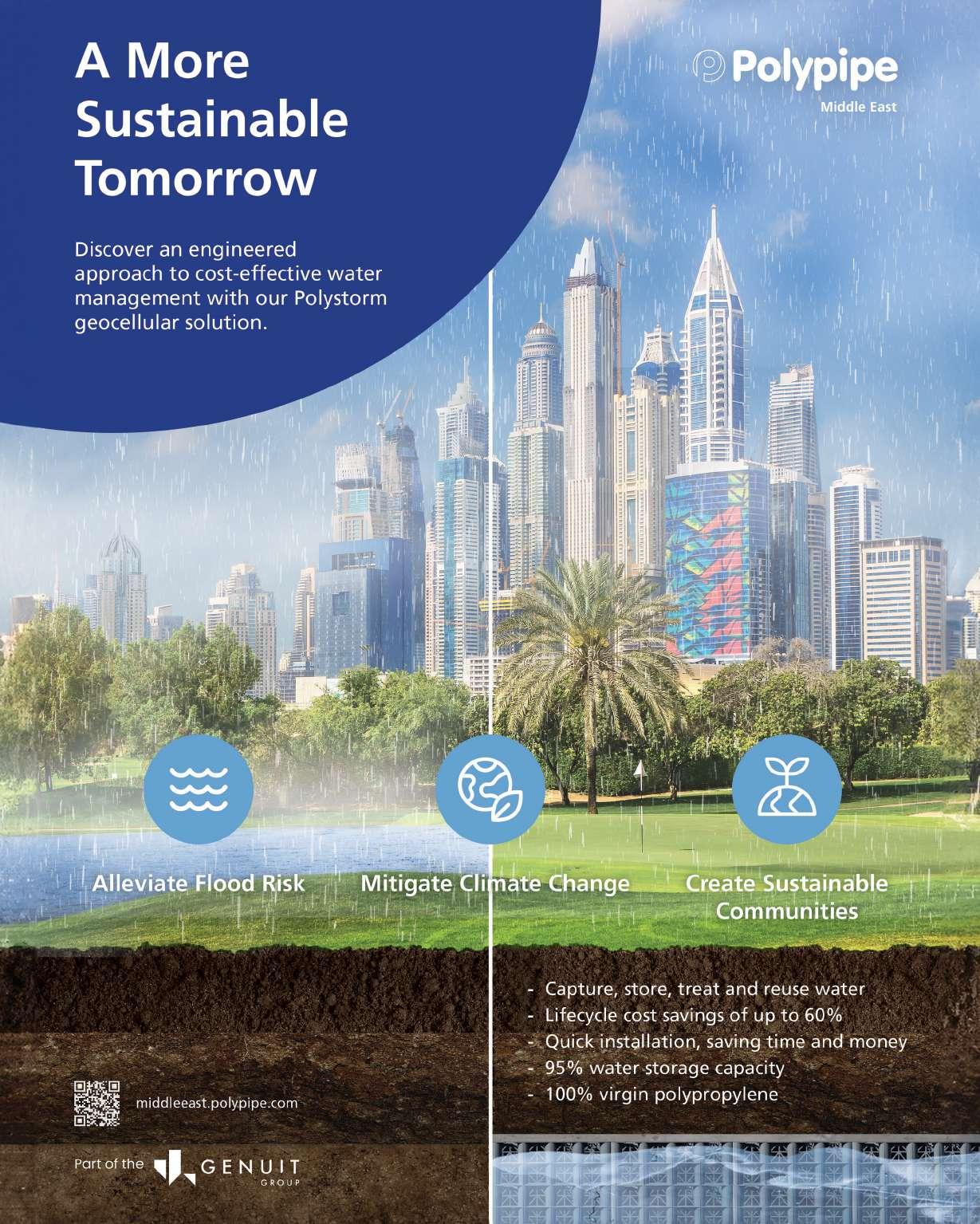

It’s time to move beyond viewing construction waste as an afterthought and begin treating it as a valuable opportunity writes Dulsco Environment’s Mohammed Hamza Abdul Aziz
When we look around, it is hard not to notice the remarkable progress the UAE is making, from new residential communities and commercial spaces to expansive road networks and infrastructure projects. However, alongside this progress is a visible challenge and hidden environmental costs in the mounting volumes of construction and demolition (C&D) waste.
Globally, C&D waste now stands at three billion tonnes per annum, which in turn contributes to around 37% of energy and process-related CO2 emissions. In parts of the UAE, C&D waste makes up a staggering 70 to 75% of total solid waste – but this is no surprise given the huge amount of new construction projects within the country. These figures demand immediate attention JUNE-JULY 2025
and underscore the growing realisation that within this challenge lies untapped potential.
Much of what is discarded including steel, wood, asphalt, concrete is recyclable, reusable, or can be processed into valuable products like road base or alternative fuels. While metals and concrete are widely recovered, other high-volume materials like plastics and wood remain significantly underutilised. And whilst increasing efforts are made to divert, all too often, they end up in landfills - contributing to environmental degradation and resulting in wasted resources that could be reintroduced into the economy.
One of the key reasons for this missed C&D waste opportunity is the lack of dedicated separation processes on-site. Contamination with dust, paint, or chemicals can hamper the separation process and of course, fire risks during storage need to be considered, especially during the UAE’s hotter months. These hurdles make recovery more complex but not impossible to overcome. There is a pressing need for more robust on-site sorting systems and clearer waste management protocols.
There are global examples that prove this approach works. In Germany, over 90% of C&D waste is recovered thanks to stringent separation laws, while the Netherlands is integrating recycled plastics into modular components for circular construction.
Dubai is following suit with its landmark decision to close all landfills by 2027, a move that highlights the urgent need for the private sector to recognise waste is not merely as something to manage, but as a valuable resource to repurpose.
Developers, contractors, and architects have a responsibility to integrate waste reduction into every stage of a project’s lifecycle, from design and procurement but to also reassign construction and demolition waste wherever possible.
Even with recycling facilities and modern construction methods, the biggest shift we need is one of mindset.
One way is to dispose of waste correctly is by segregating it and engaging experienced waste management companies that understand the complexities of C&D waste. Beyond its environmental advantages, this approach also drives social impact and economic value across the sustainability chain. Recycling reduces the demand for virgin materials, curbs carbon emissions, and spurs the development of new markets — from waste sorting and recycling to product innovation using recycled materials.
Another powerful driver is construction innovation. Prefabricated and volumetric building methods have the potential to significantly reduce C&D waste, lower emissions, and accelerate project timelines.
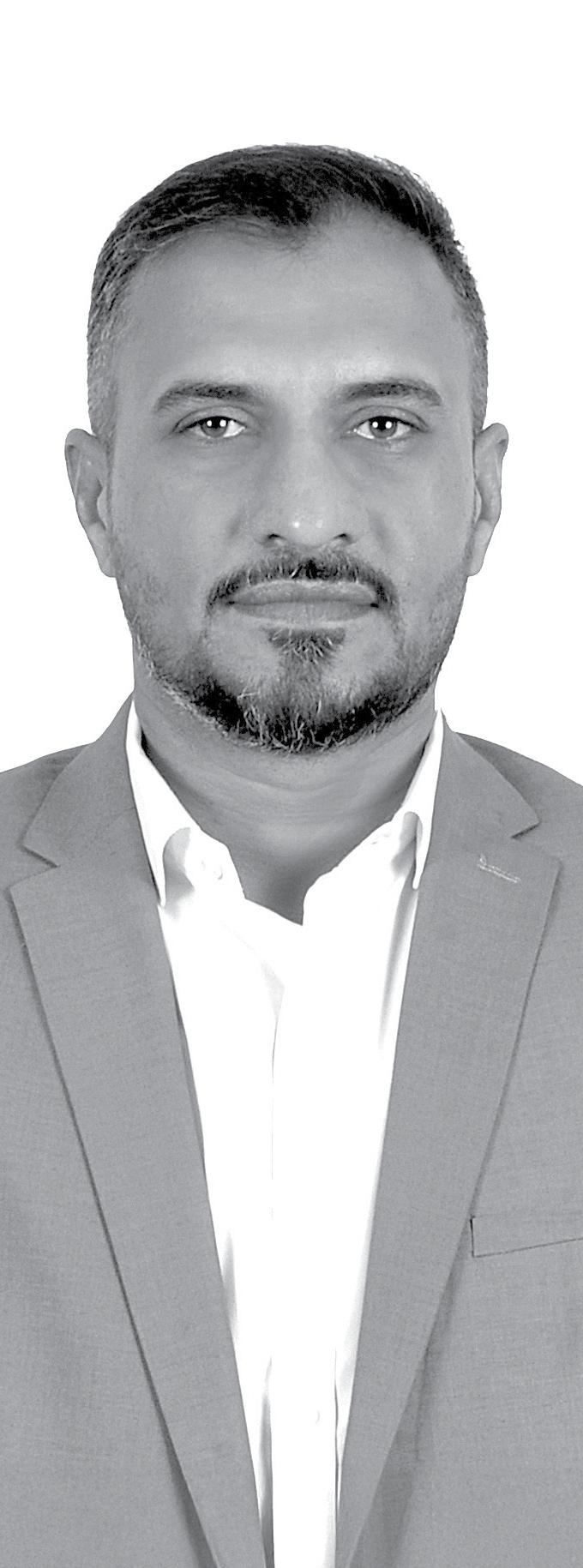
To accelerate adoption, investments in modular manufacturing are a must. PPPs can help co-invest in modular production lines, reducing reliance on imports and solving logistical challenges. Initiatives like the ‘Make it in the Emirates’ programme can be used to incentivise these shifts.
But even with recycling facilities and modern construction methods, the biggest shift we need is one of mindset. If there’s one change we could implement immediately to reduce waste from mega-projects, it would be to stop thinking of it as waste at all, and start viewing it as a resource.
As the UAE continues to lead the region in infrastructure innovation, it is important to recognise the decisions we make today will shape the nation’s environmental future.
As leaders working in close alignment with the country’s vision, we have a shared responsibility to prioritise sustainability. It is time to move beyond viewing waste as an afterthought and begin treating it as a valuable opportunity for resource recovery and sustainable innovation.
Contractor Bhatia General Contracting said it handed over 1,050 villas in Al Khawaneej 2 district recently, as part of a major government initiative to provide high-quality, modern housing for Emirati families and support sustainable urban development in Dubai.
The project is said to exemplify Bhatia Group’s dedication to providing a variety of best-inclass housing options, in line with its 50-years of excellence and commitment to enhancing UAE’s real estate landscape. The project, which is now in its final phase, plays a crucial role in the ‘Dubai 2033 Plan’, a strategic initiative aimed at reinforcing Dubai’s reputation as one of the world’s most liveable urban centres, the company explained.
With this milestone, the total value of the projects executed since 2024 has reached $681mn.

Furthermore, the project is part of the historic $17.7bn housing budget approved by His Highness Sheikh Mohammed bin Rashid Al Maktoum, Vice President and Prime Minister of the UAE, and Ruler of Dubai. The budget, extending until 2040, reflects the wise leadership's commitment to providing high-quality housing solutions to Emirati citizens.
“This landmark housing development stands as a testament to our visionary leadership's dedication to enriching citizens' lives and nurturing their dreams. Aligning with this vision, and as we celebrate our 50th anniversary at Bhatia Group, we continue to strive to create welcoming spaces which can enrich the lives of residents and foster a sense of belonging. In this regard, the 1050 Villas Complex stands out as an epitome of thoughtful, sustainable urban
living, designed to serve both present and future generations,” said Ajay Bhatia, Chairman of Bhatia General Contracting and Founder of SOL Properties.
The project is said to demonstrate Bhatia Group’s decades of excellence and craftsmanship, which have made the company a trusted name in the UAE. With a legacy of delivering key developments such as the Dubai Government’s Ambulance complex, the Dubai Central Laboratory, the Hatta Border Port Crossing complex linking the UAE and Oman, and the Dubai Waterfront Market - Bhatia Group has consistently demonstrated its ability to execute projects that are vital to the nation’s infrastructure and community wellbeing. It is this track record that earned the opportunity to deliver a prestigious project, the firm noted.
